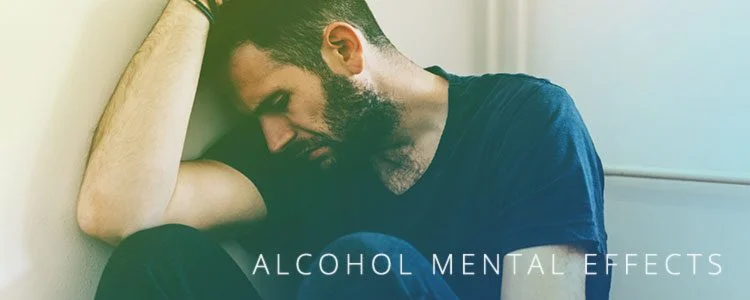139 Best Alcohol and Drug Rehabs in Oregon 2025
Individuals seeking addiction recovery in Oregon have access to 139+ drug rehab centers offering comprehensive treatment options. Our directory features a diverse selection of inpatient and outpatient facilities, detox centers, and medication-assisted treatment (MAT) programs to support lasting recovery.
Explore various rehab options, compare services, and find a facility that meets your specific needs. Whether you need medical detox, evidence-based therapy, or a long-term recovery plan, this resource connects you with reputable providers in Oregon.
139 Treatment Centers in Oregon, US

6.88
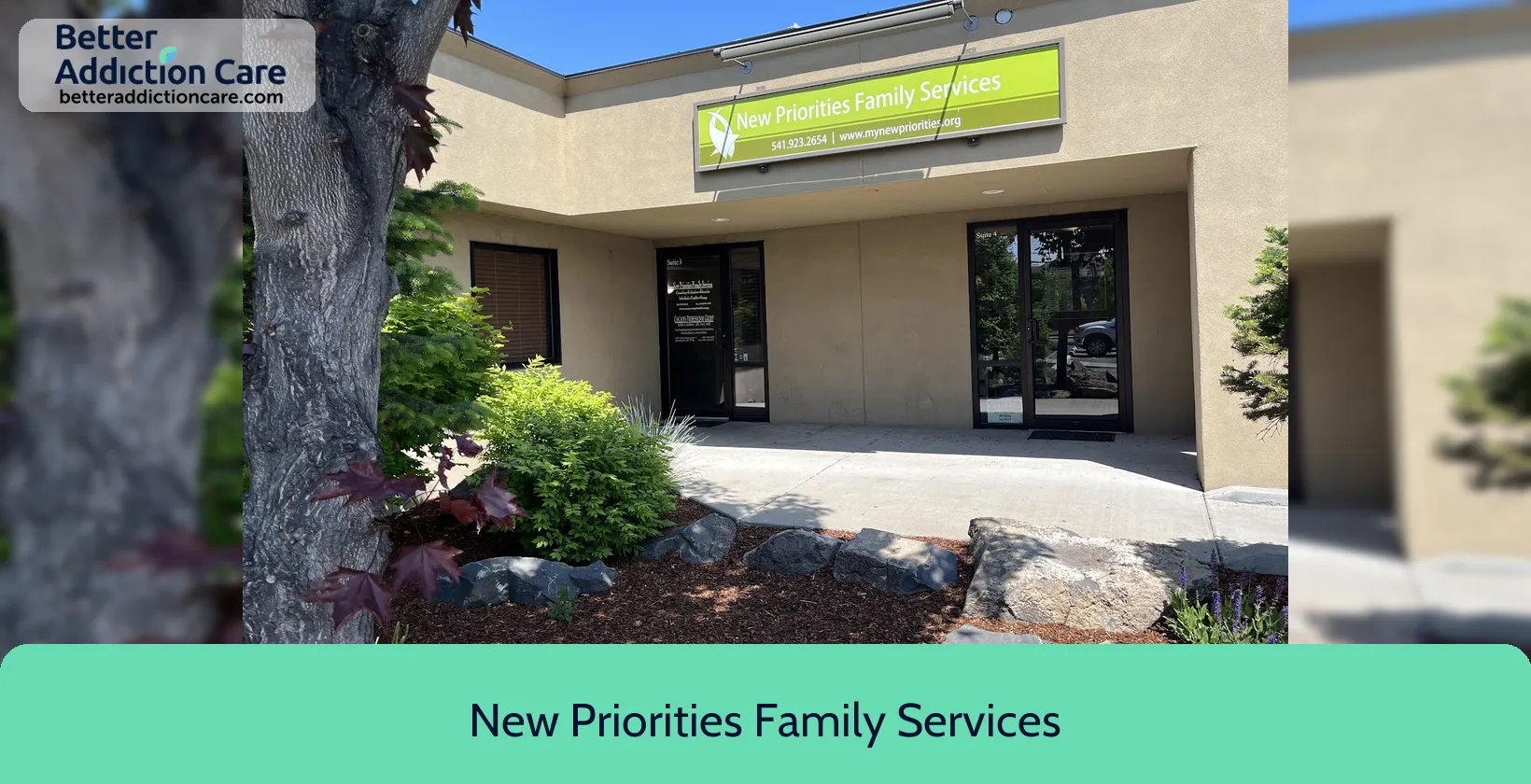
7.23
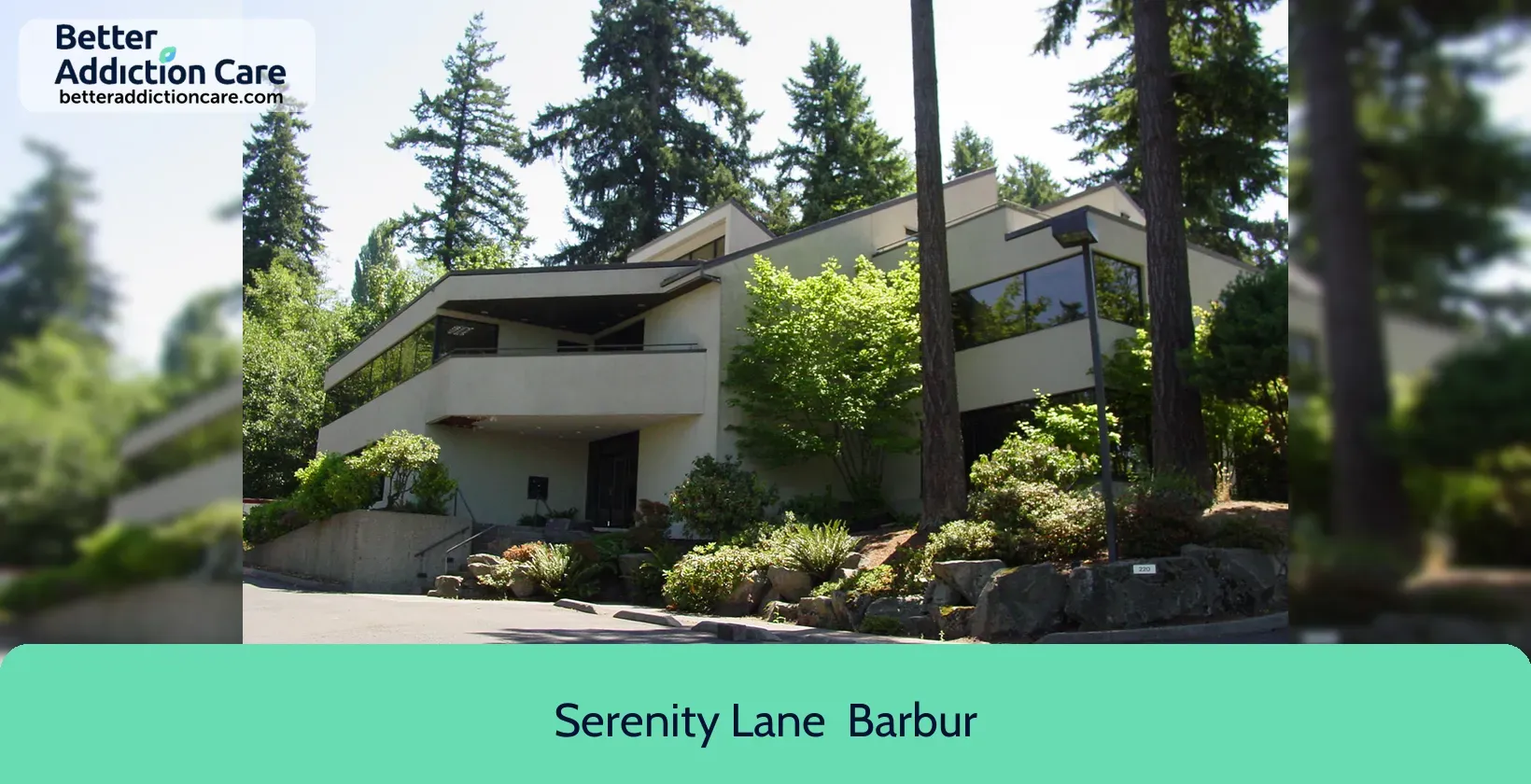
7.09
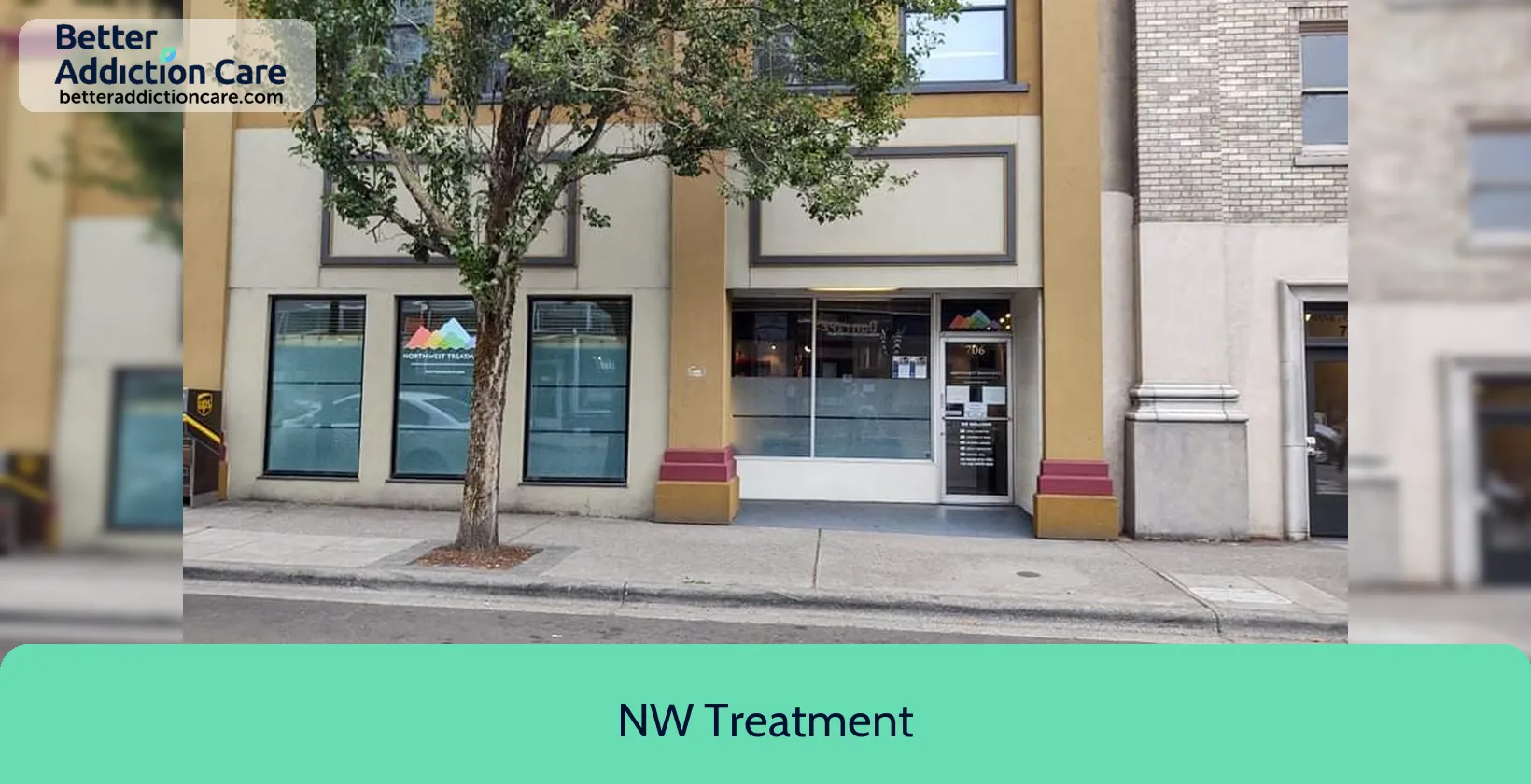
6.76
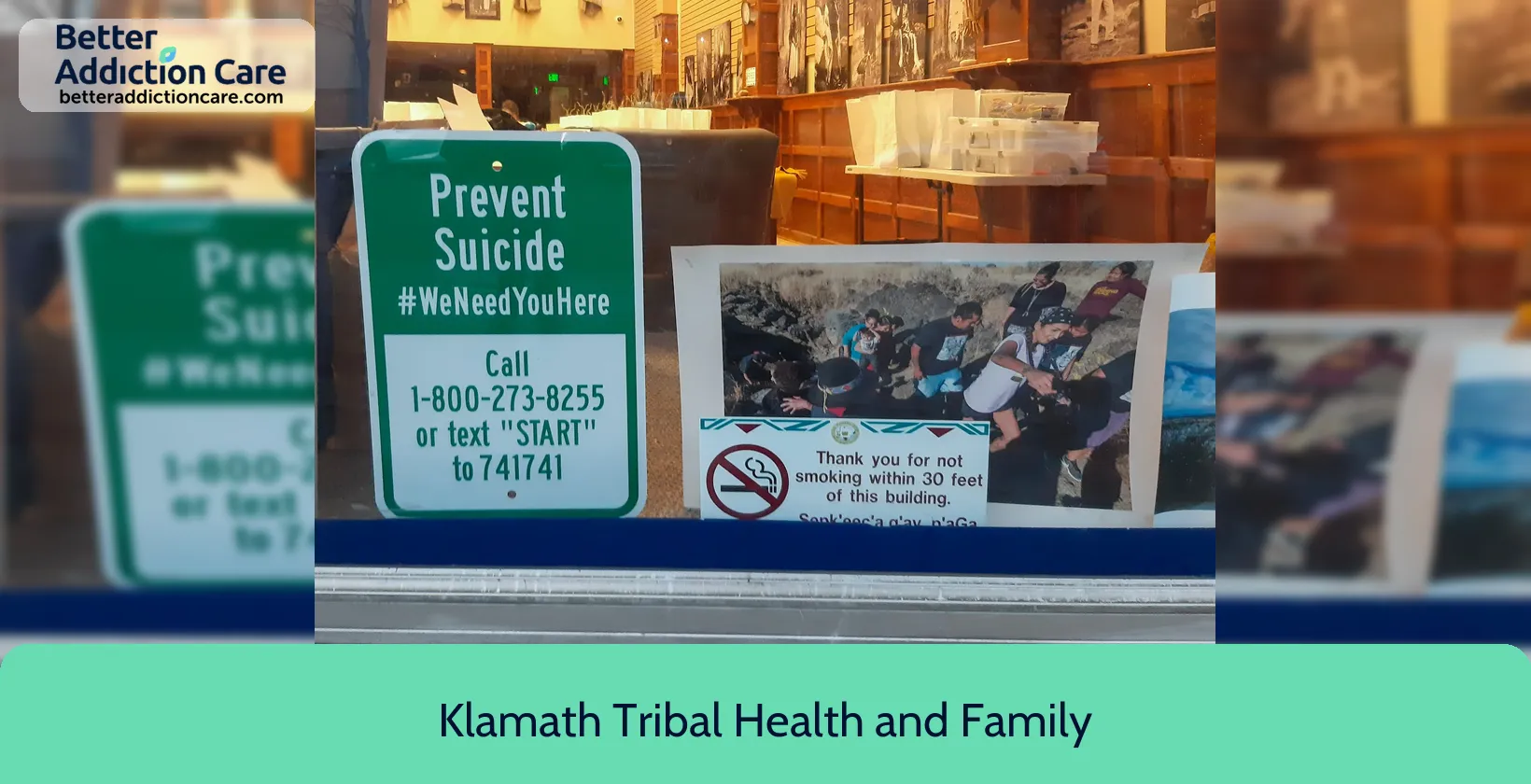
7.03
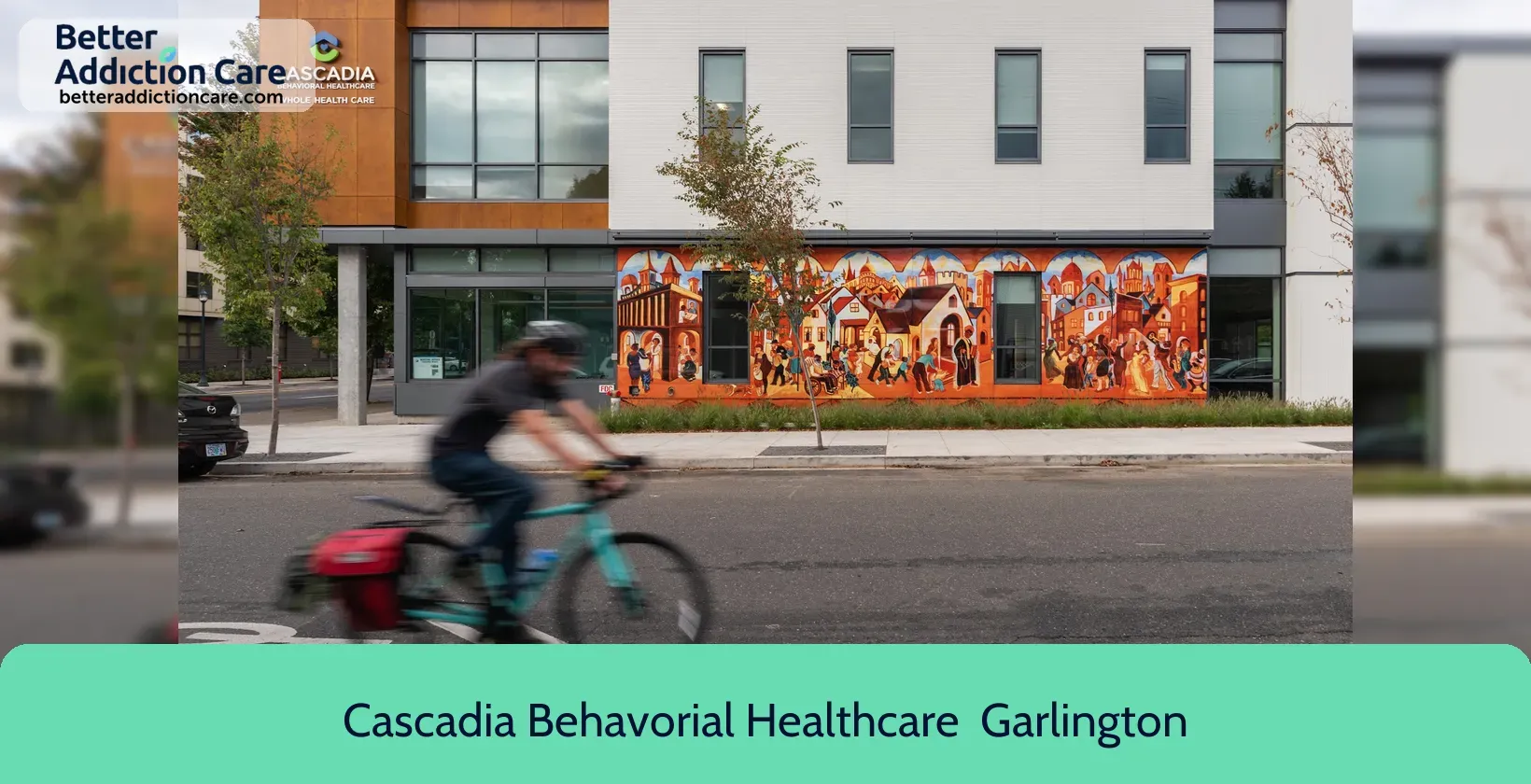
7.89
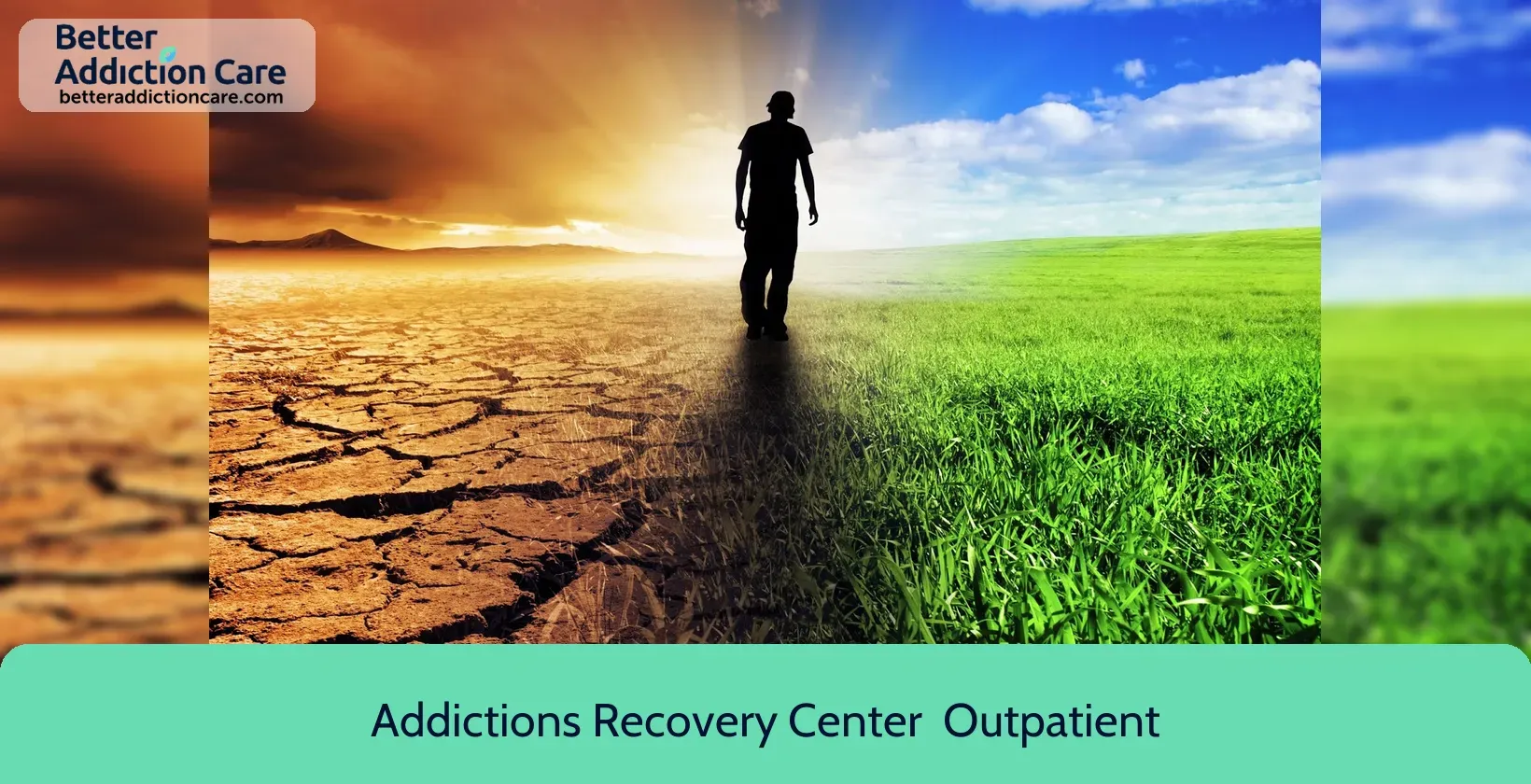
7.60
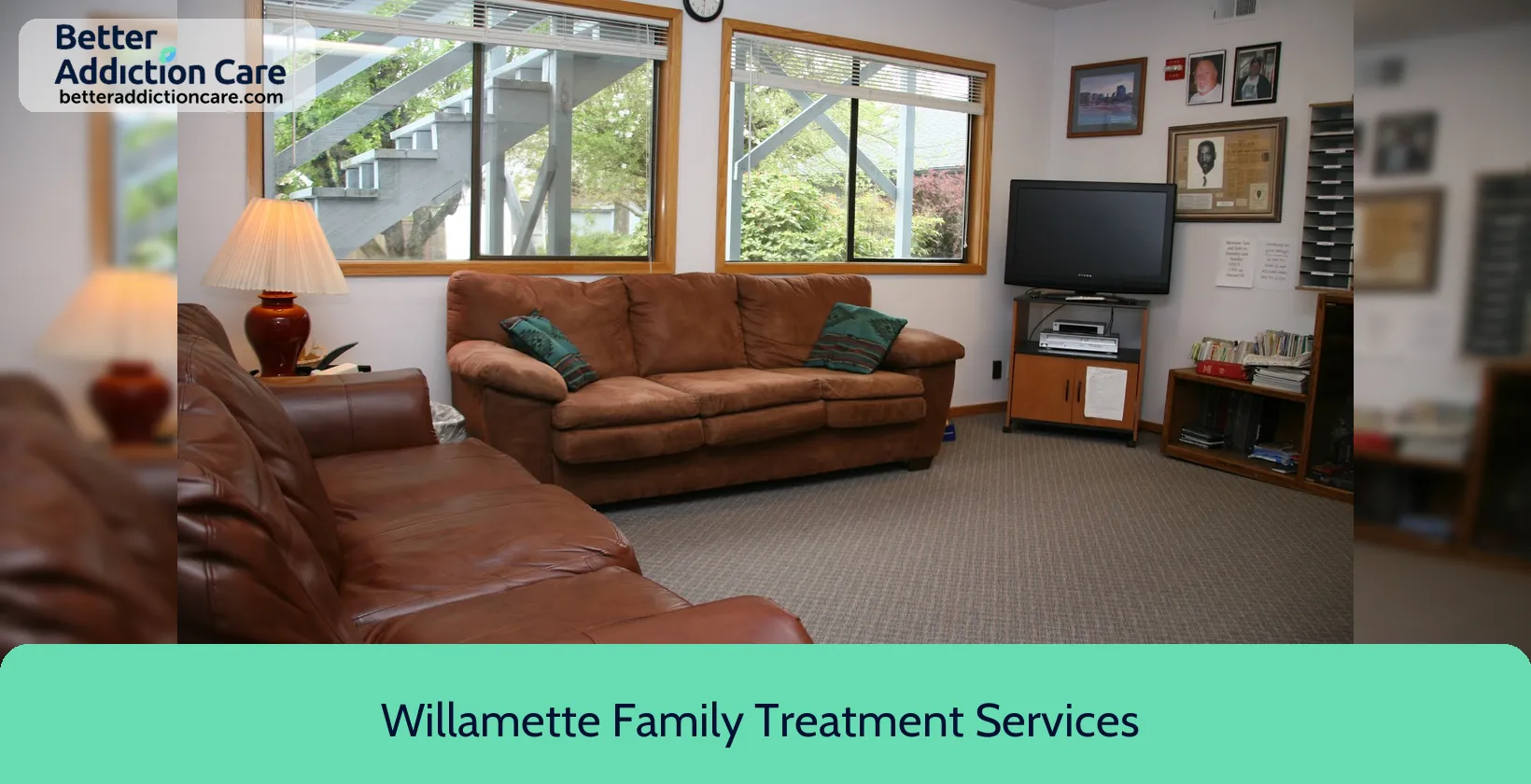
7.00

7.07
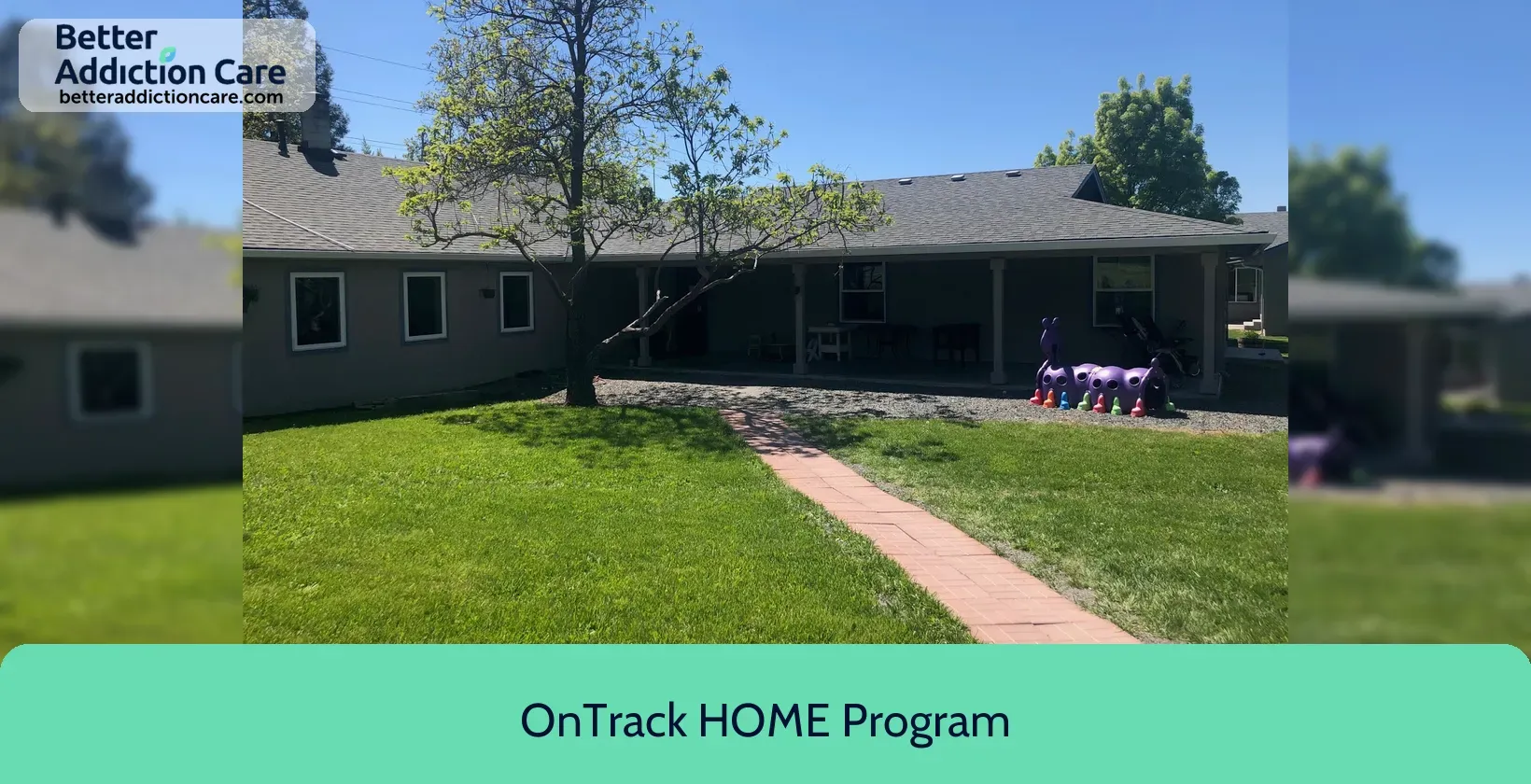
7.10
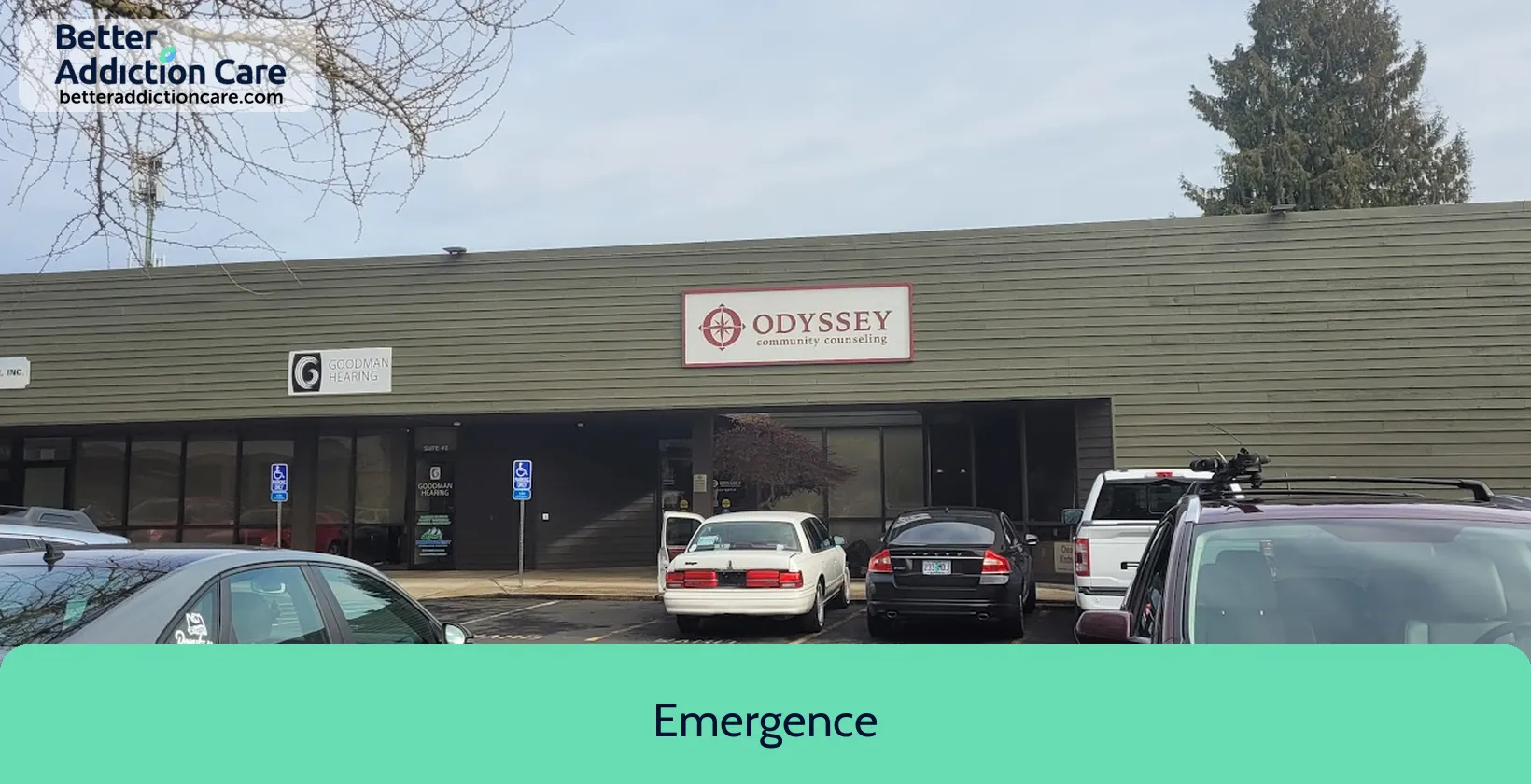
6.85
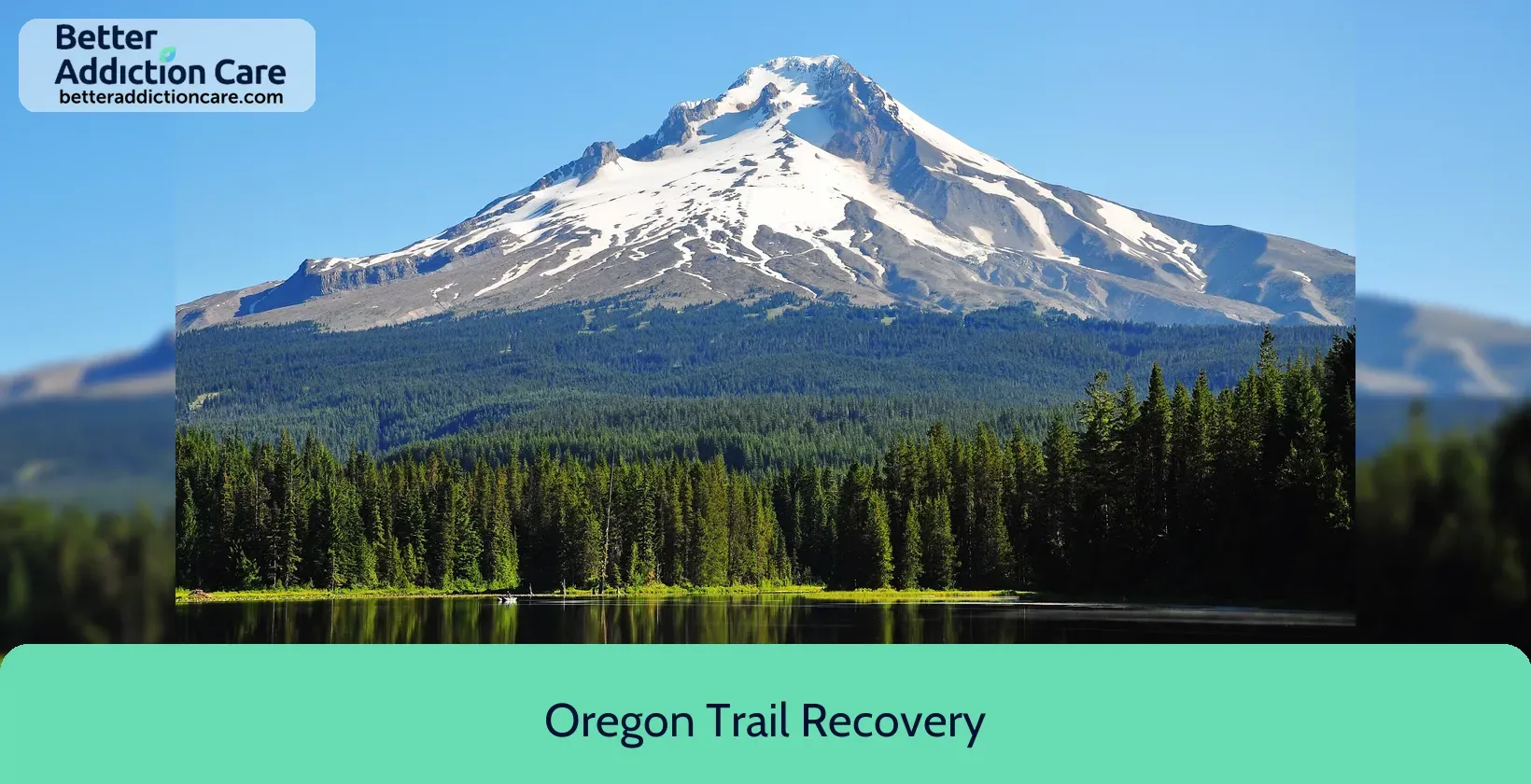
7.71
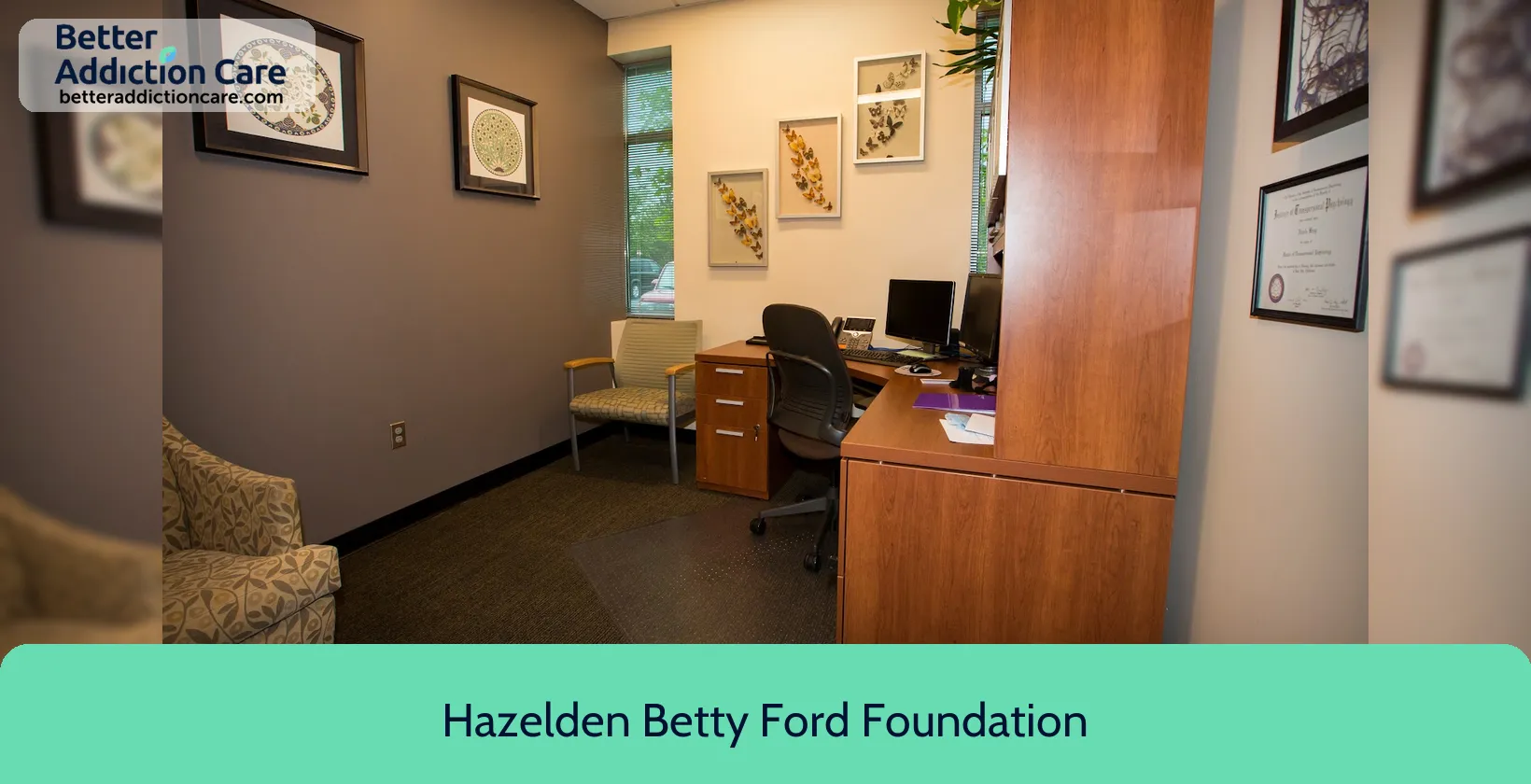
7.52
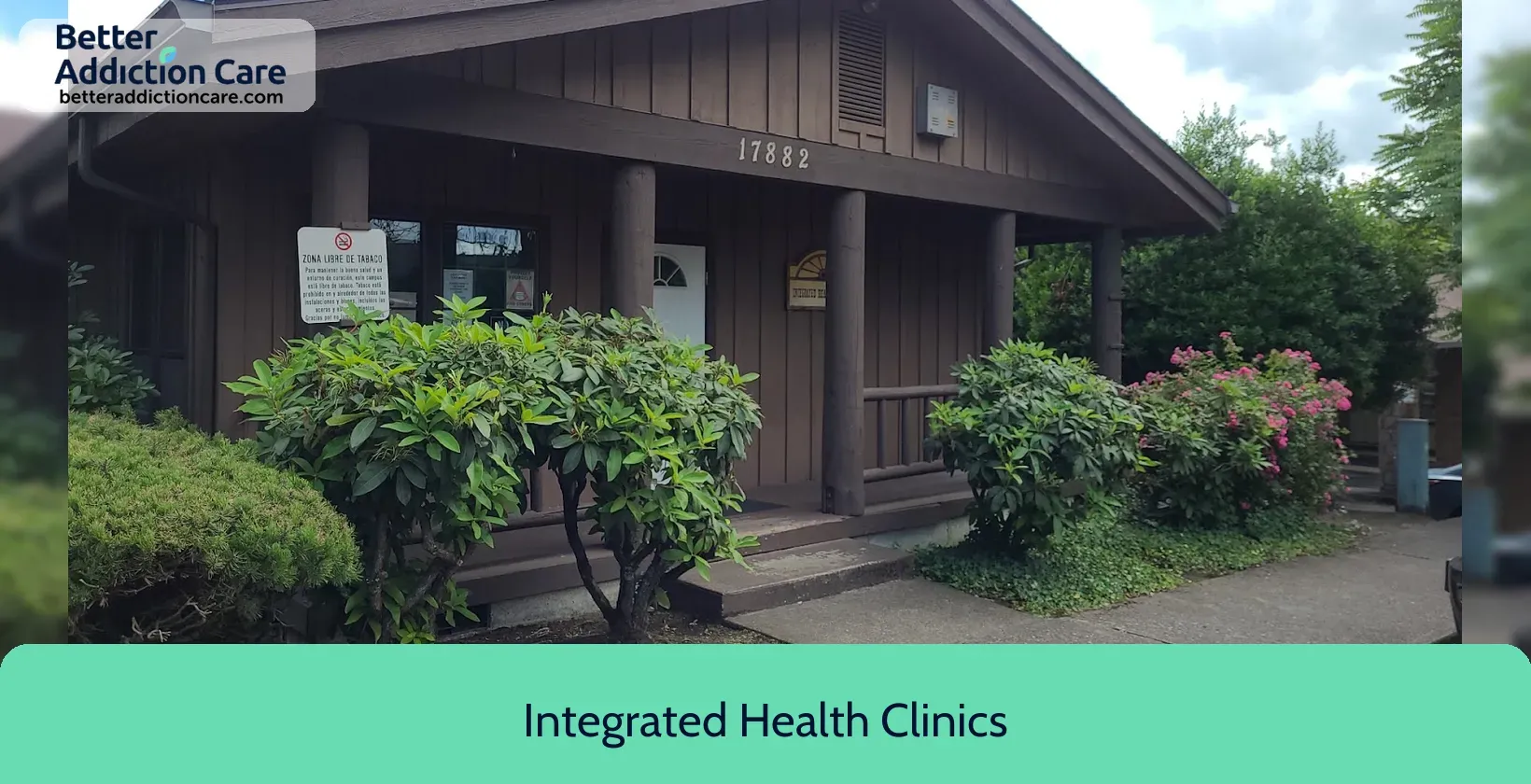
6.97

7.88
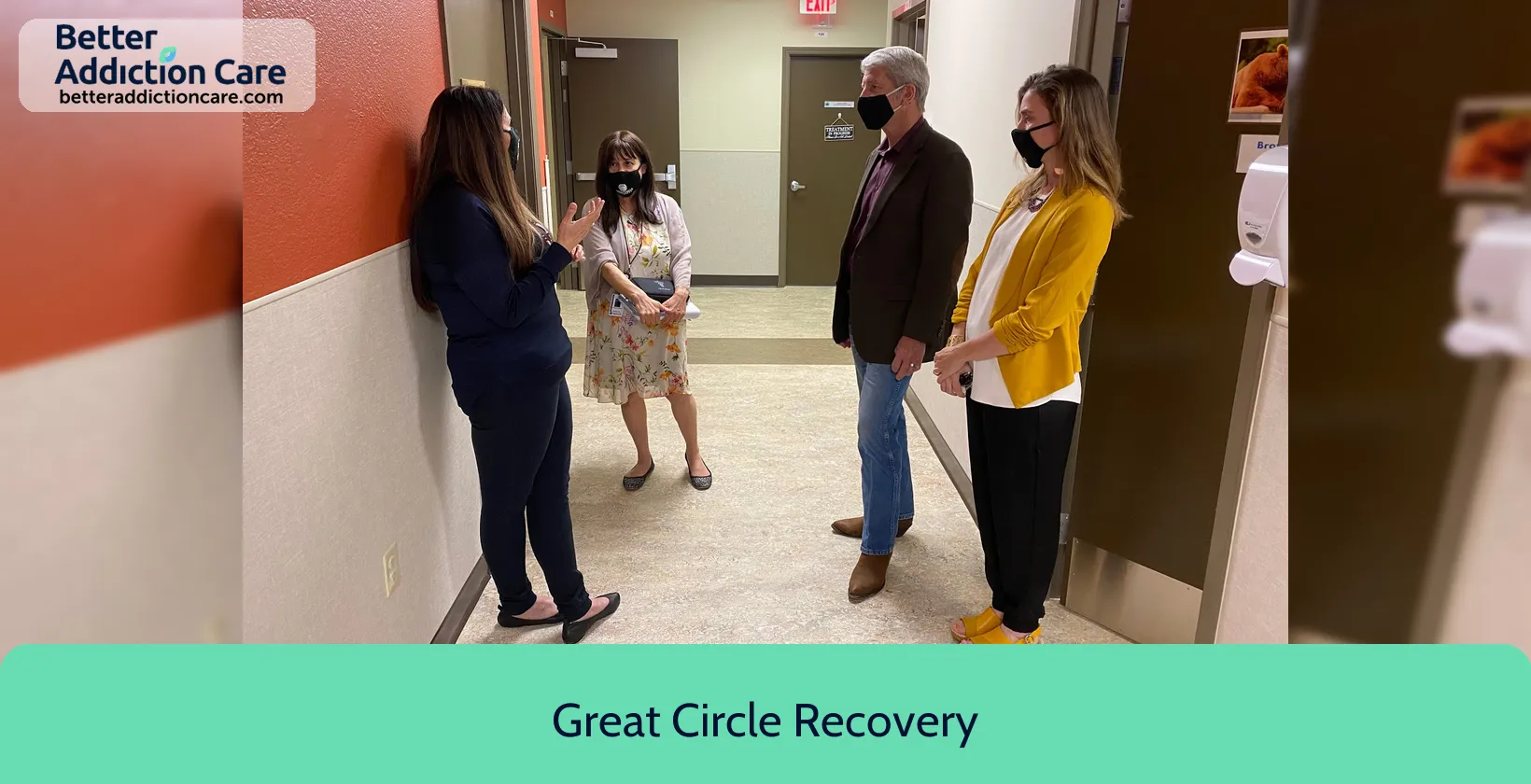
7.02
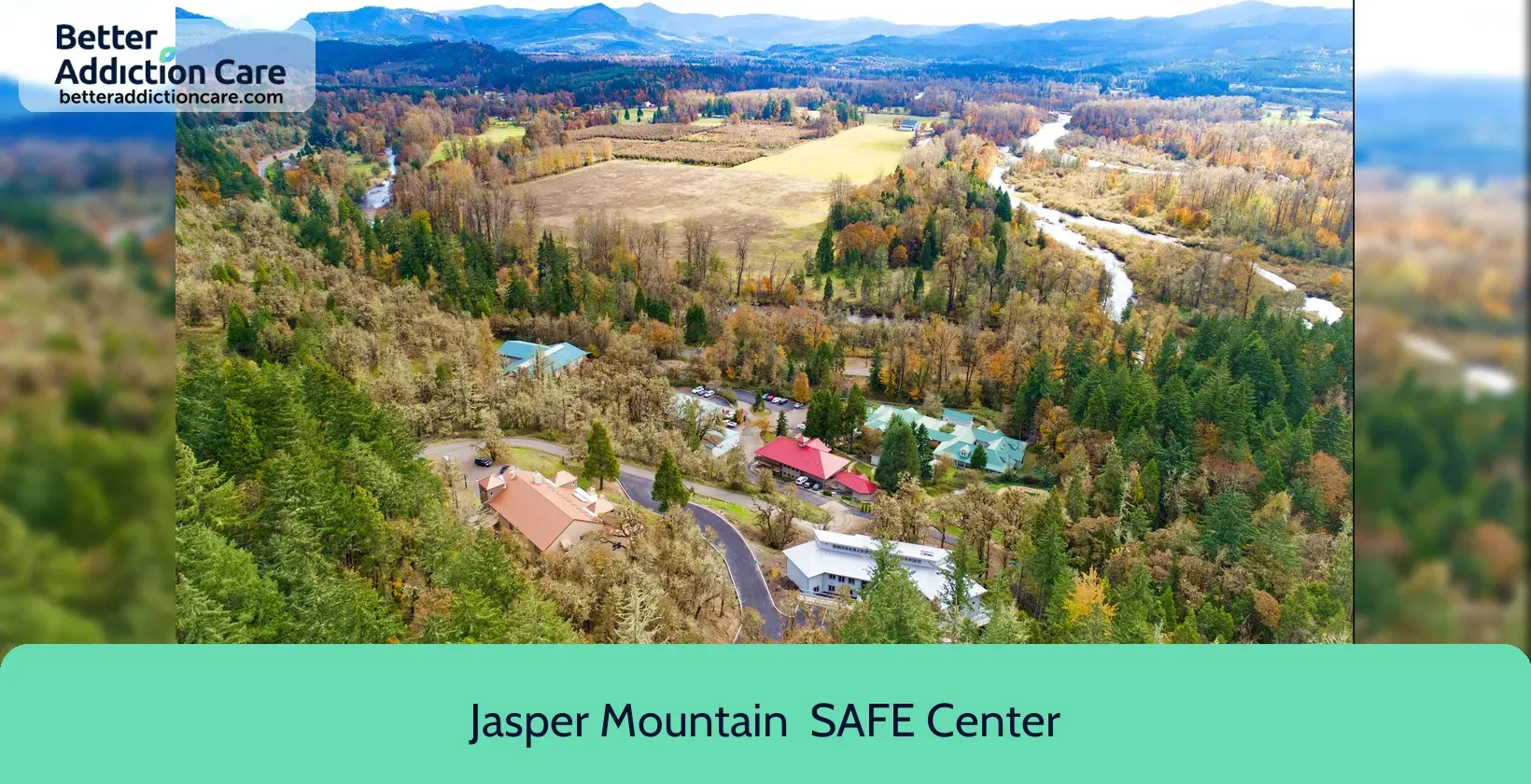
6.62
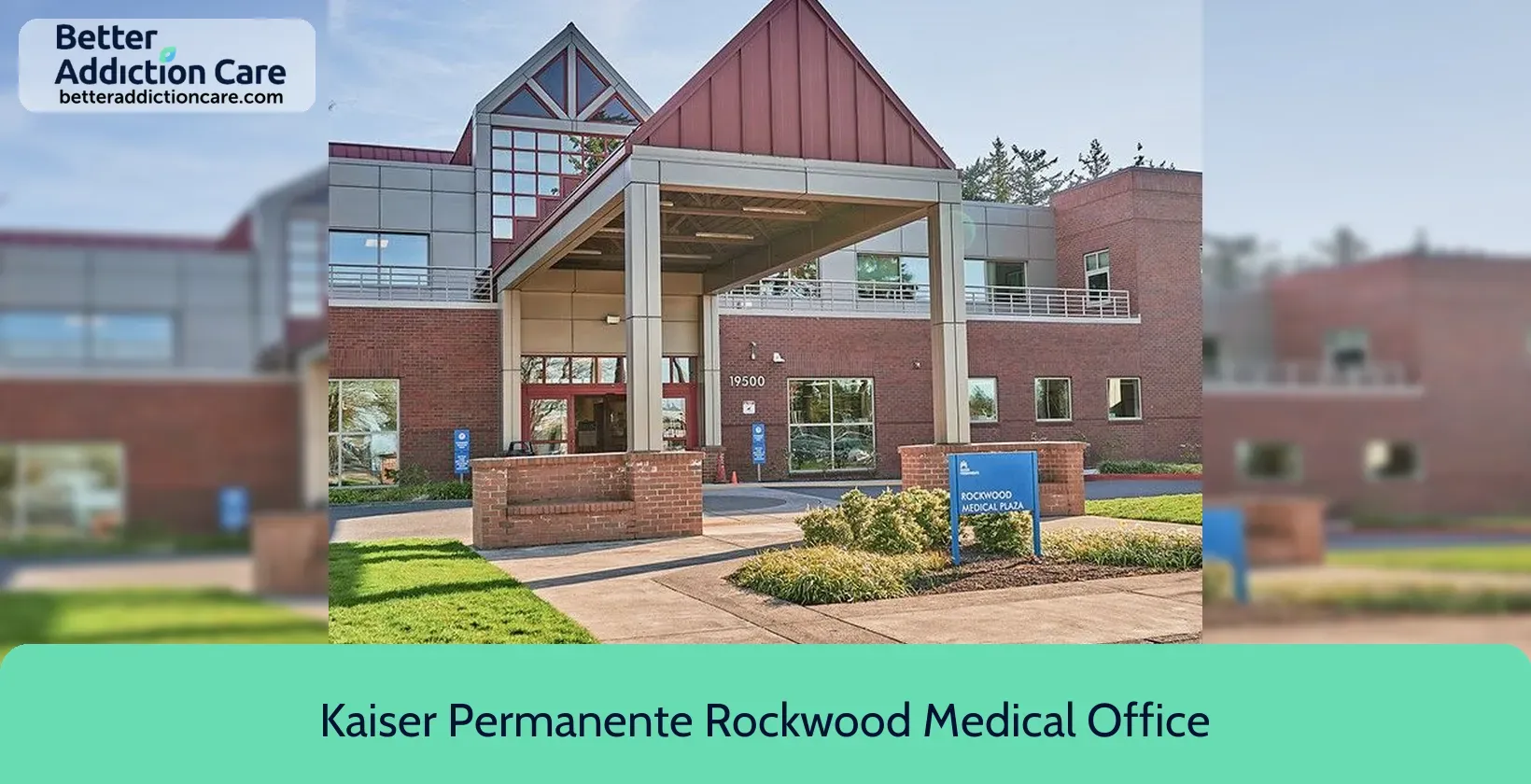
7.20
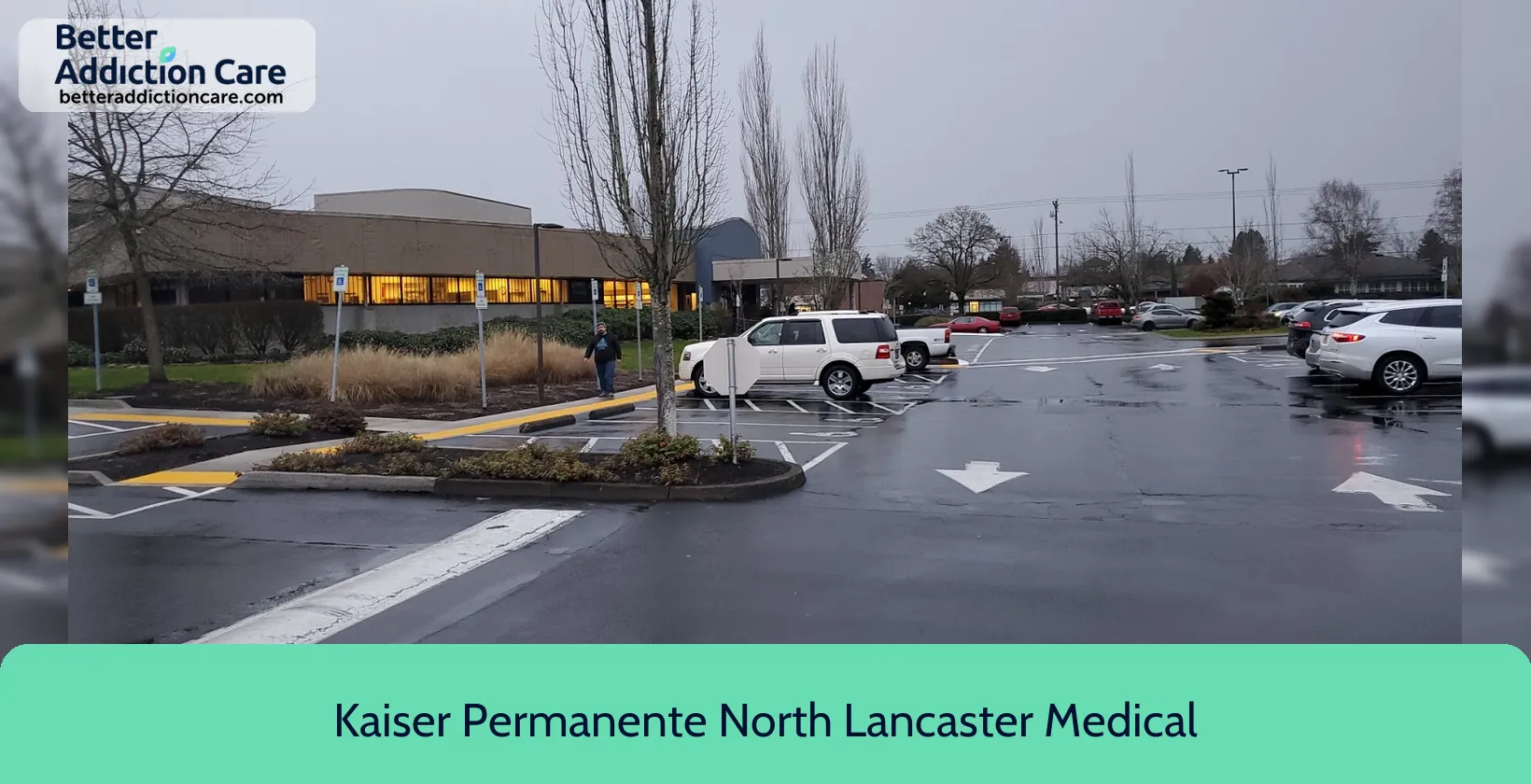
7.23
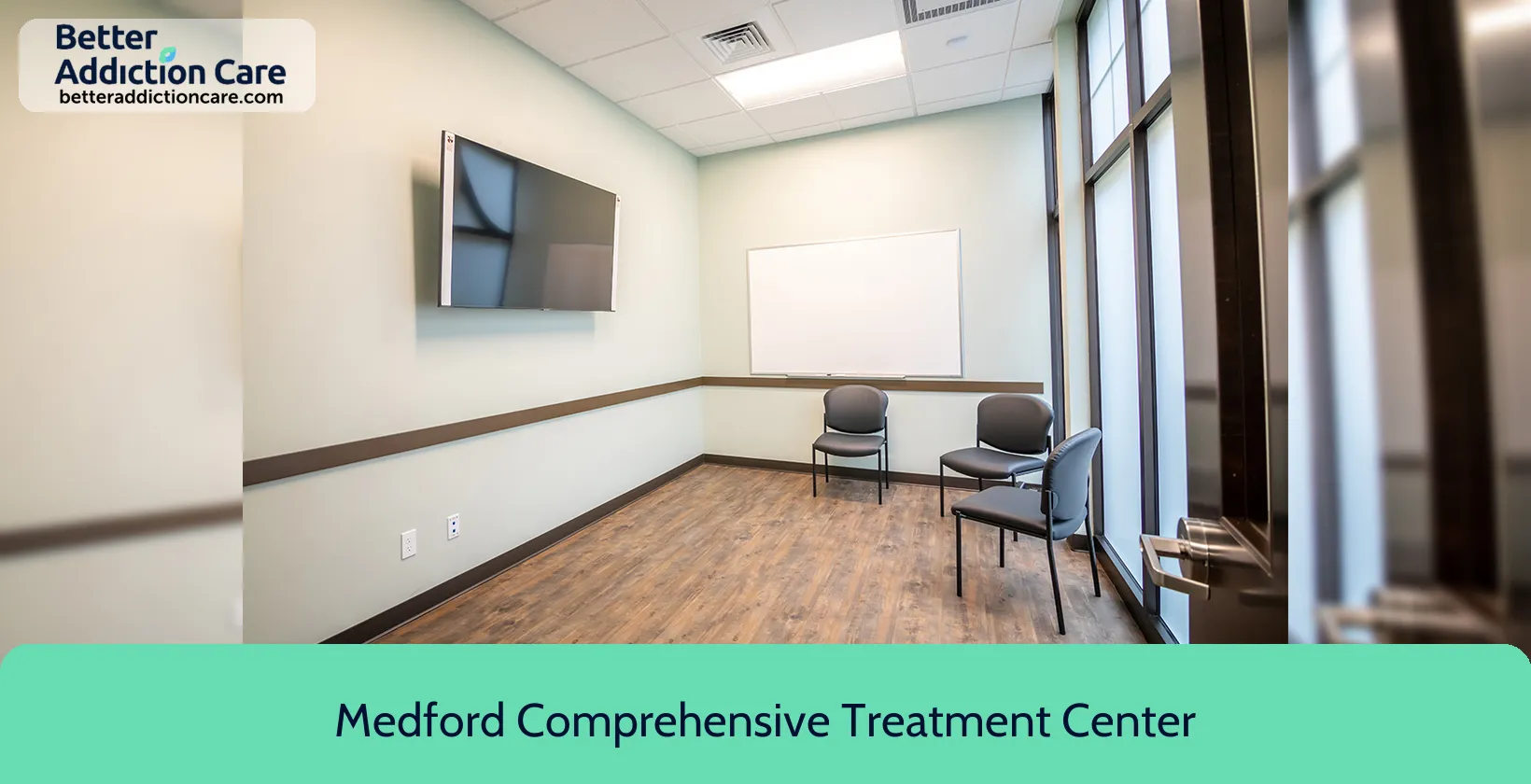
7.17
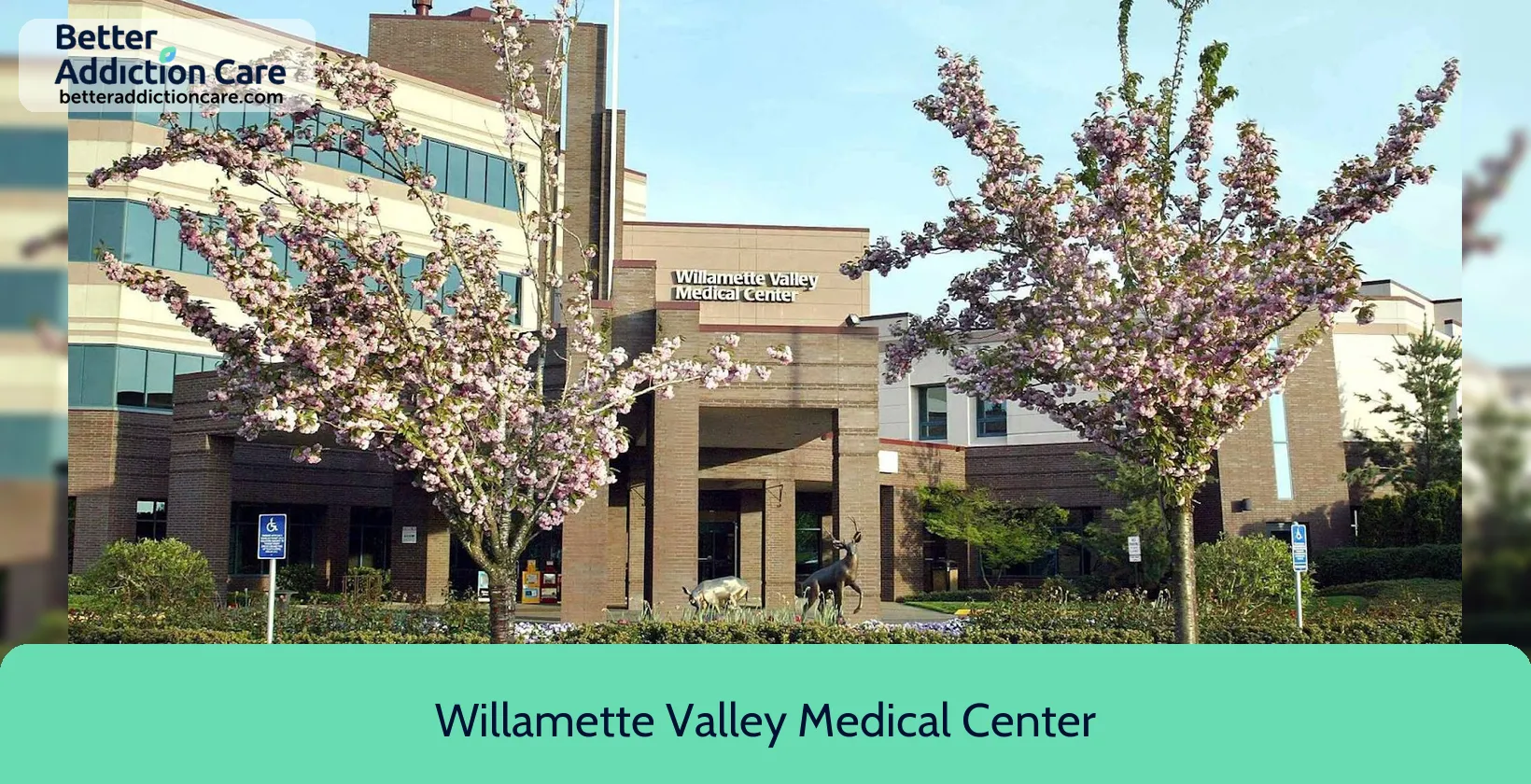
6.68
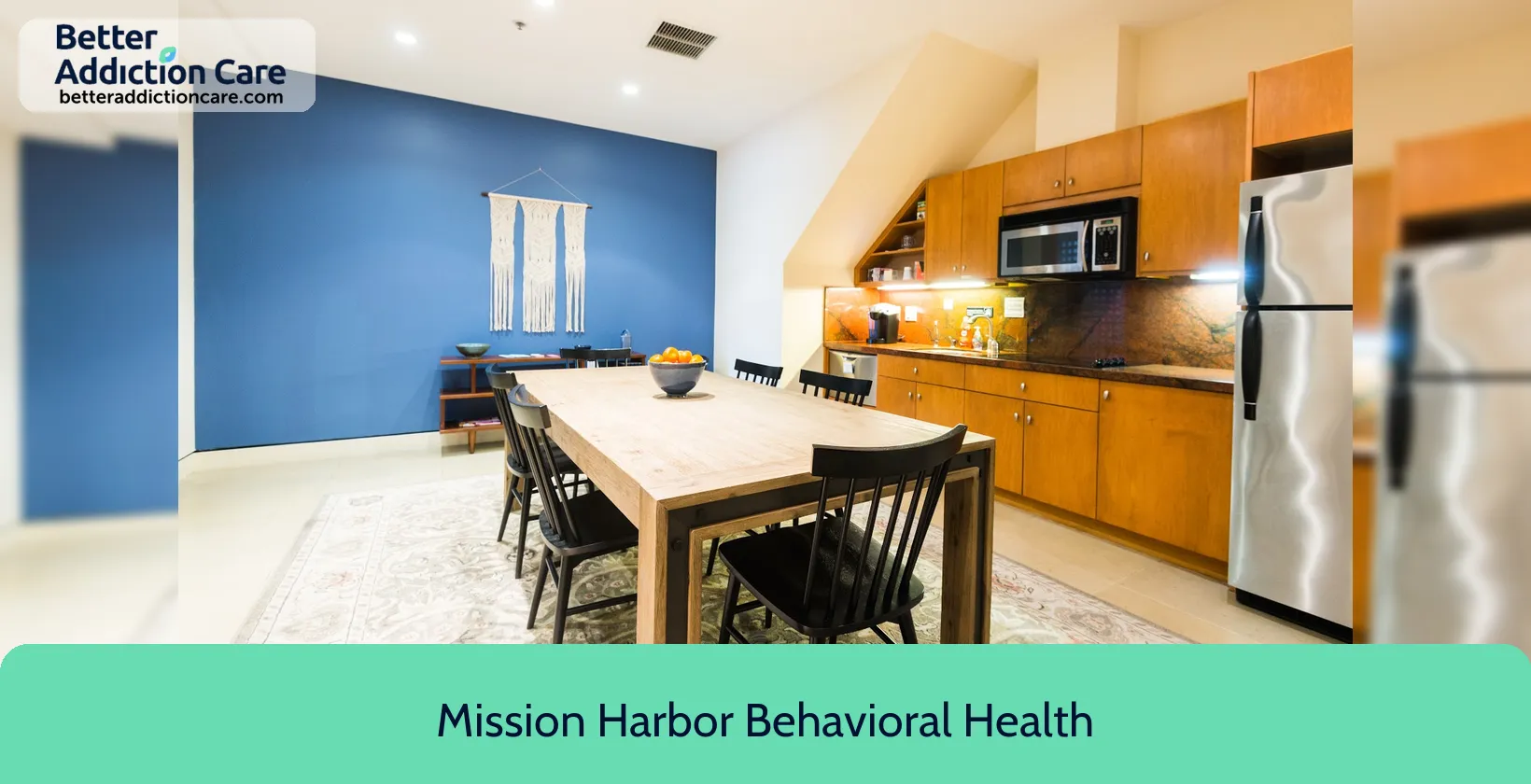
6.62
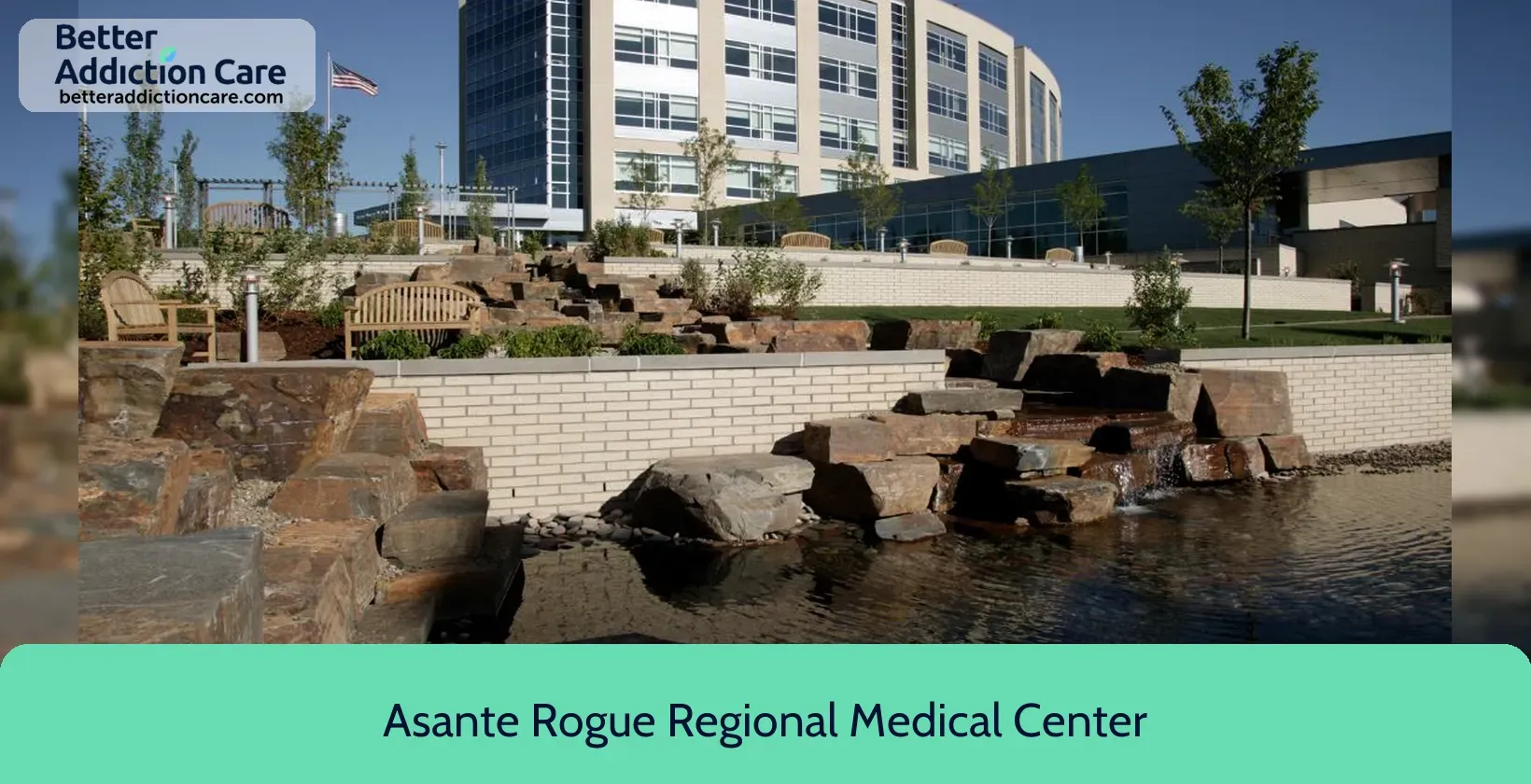
6.62
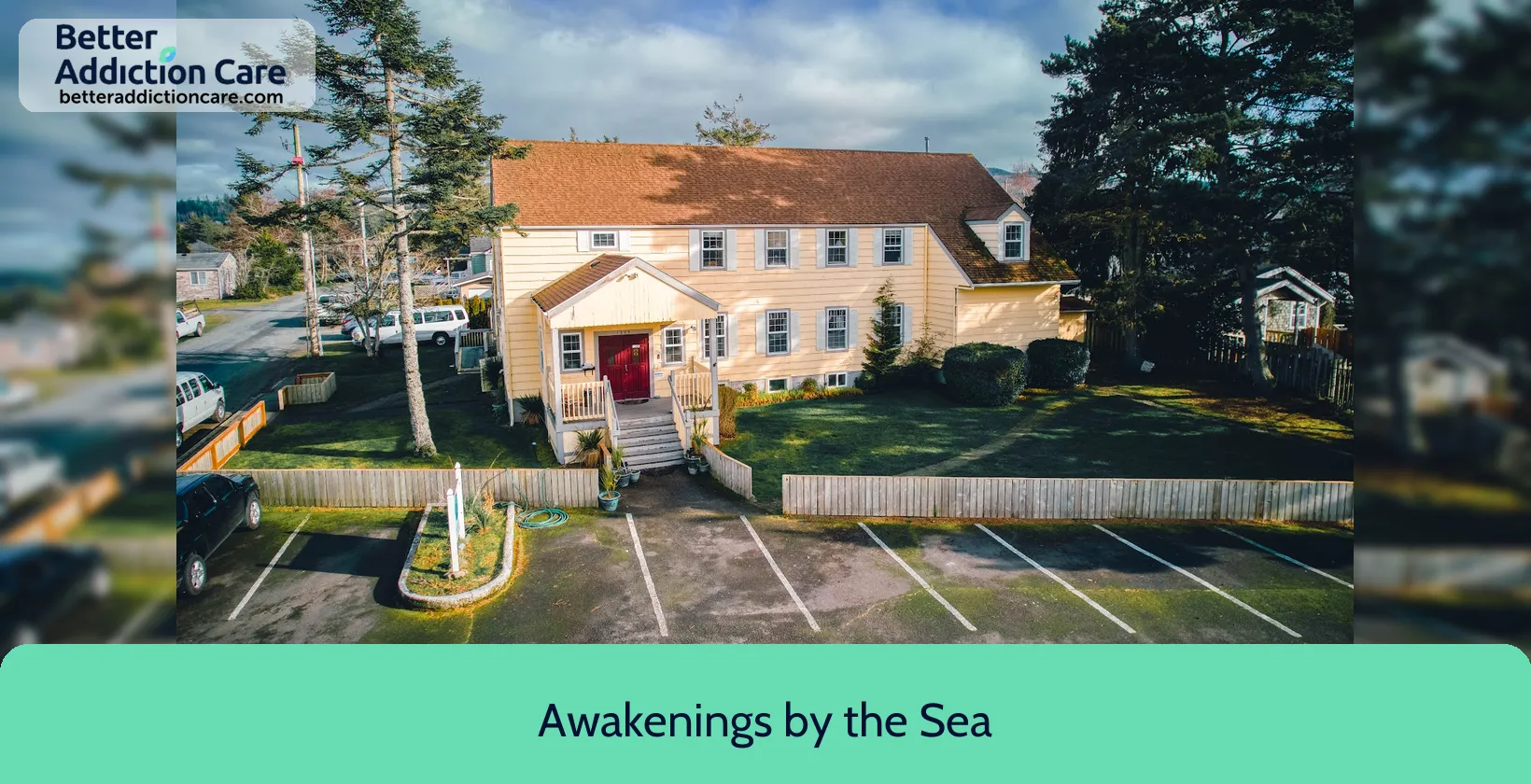
7.08
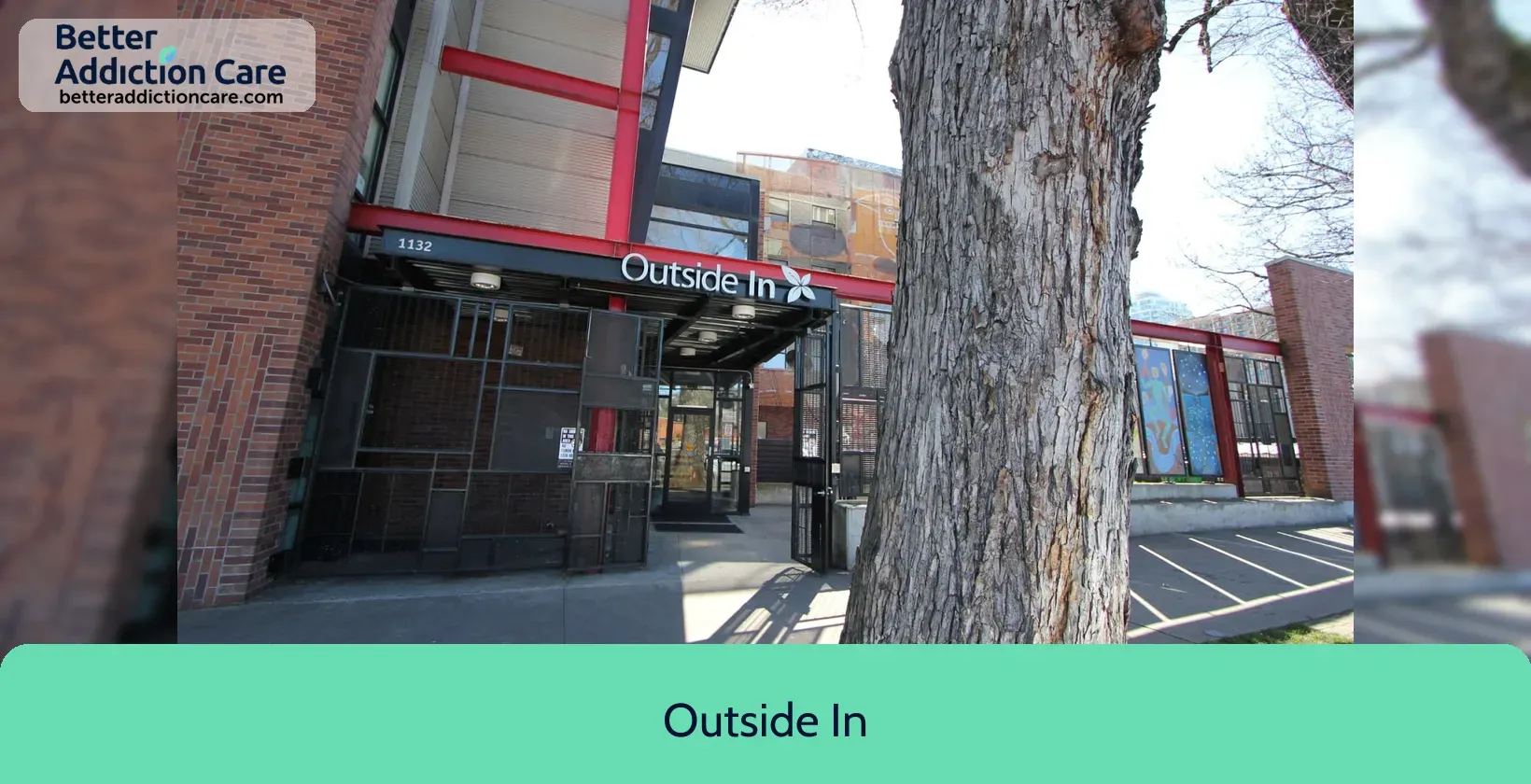
7.08
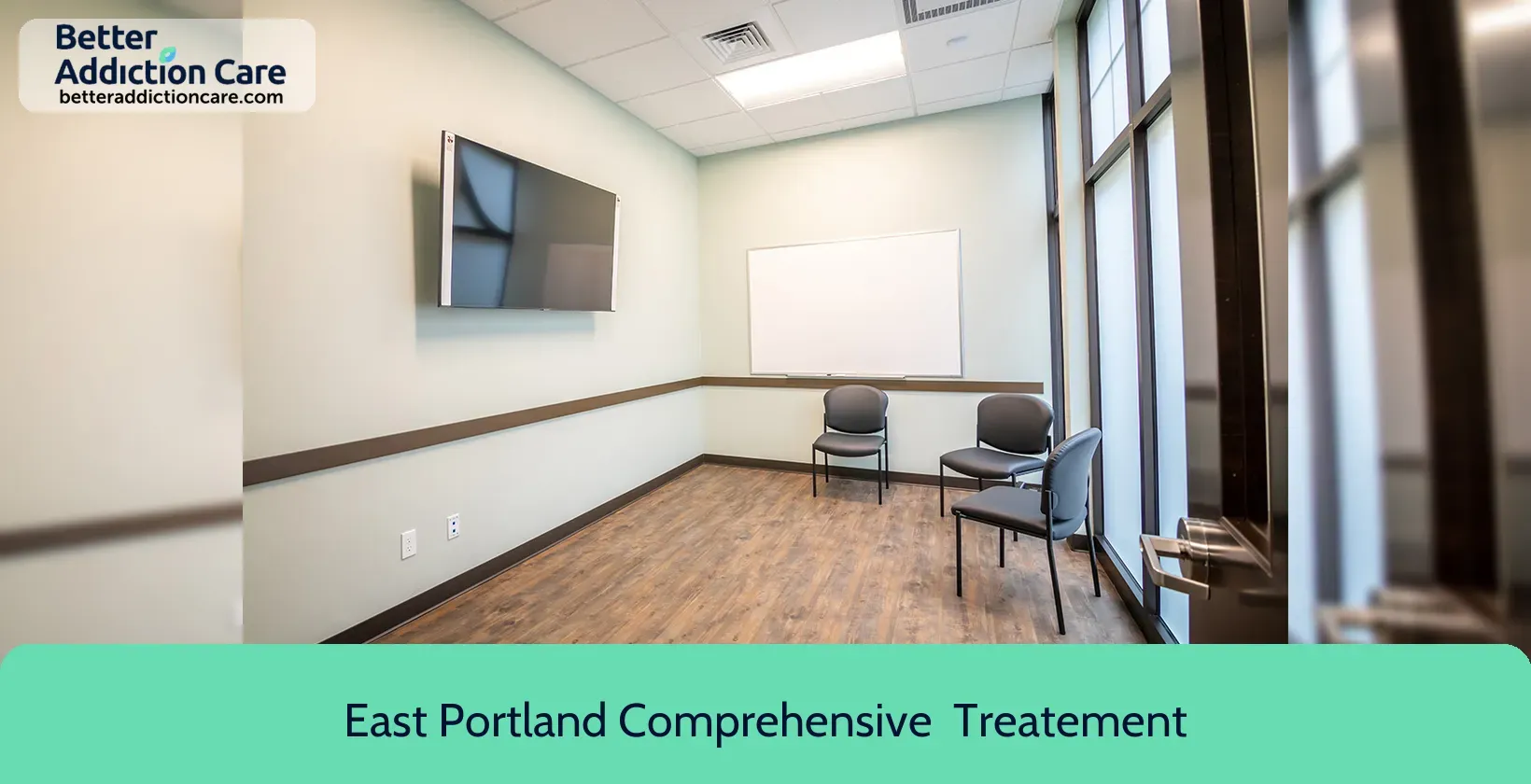
7.16
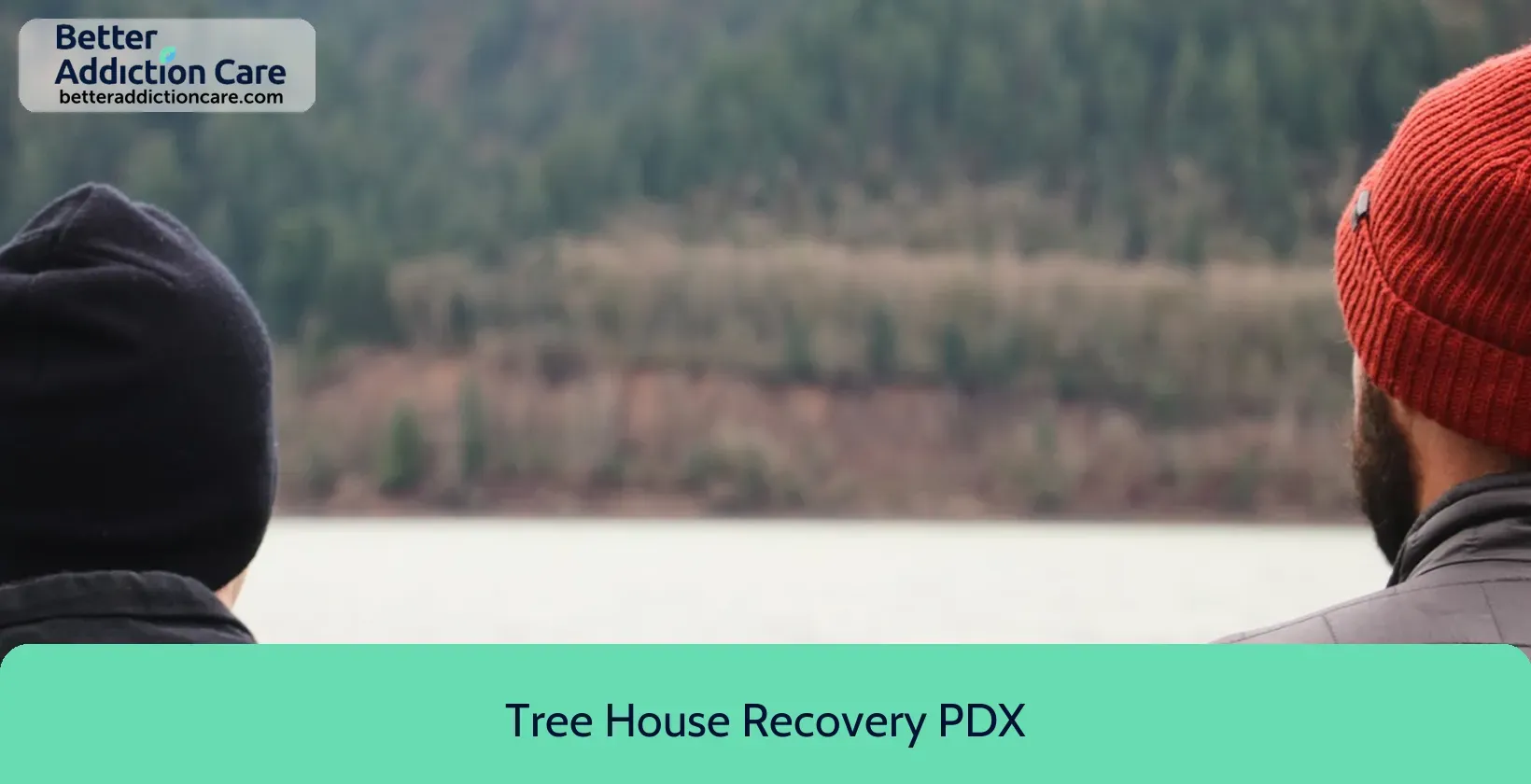
6.99
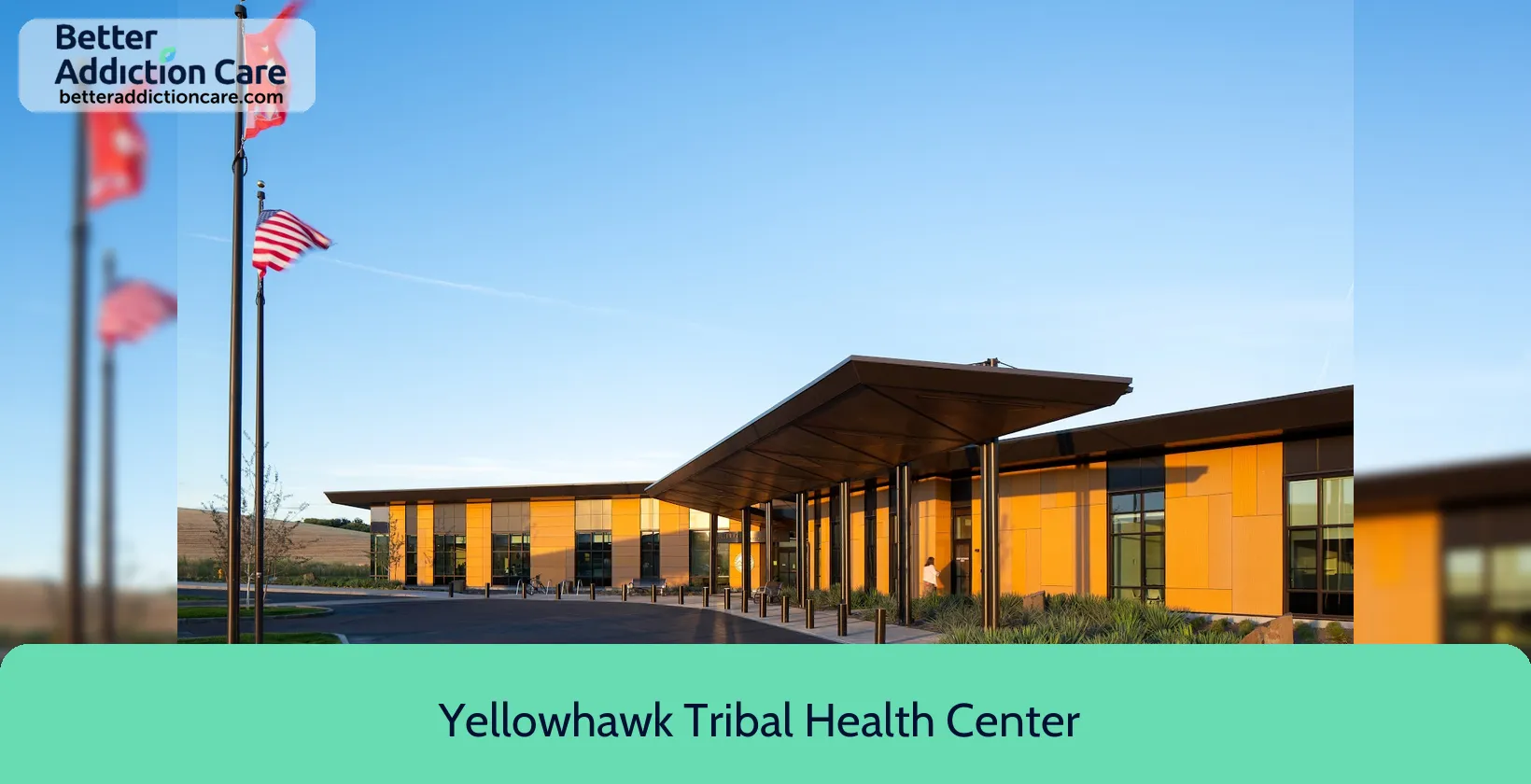
7.25
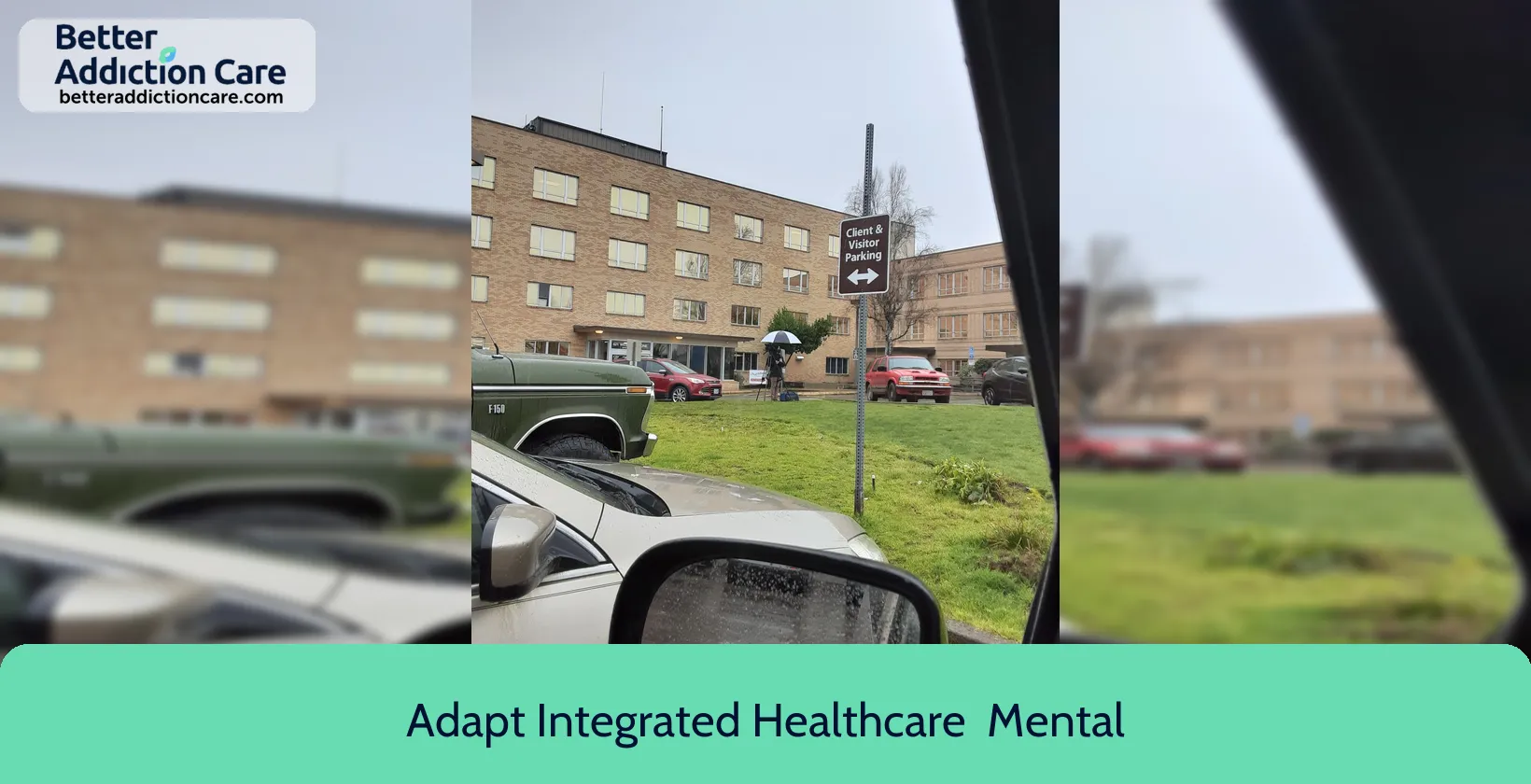
6.68
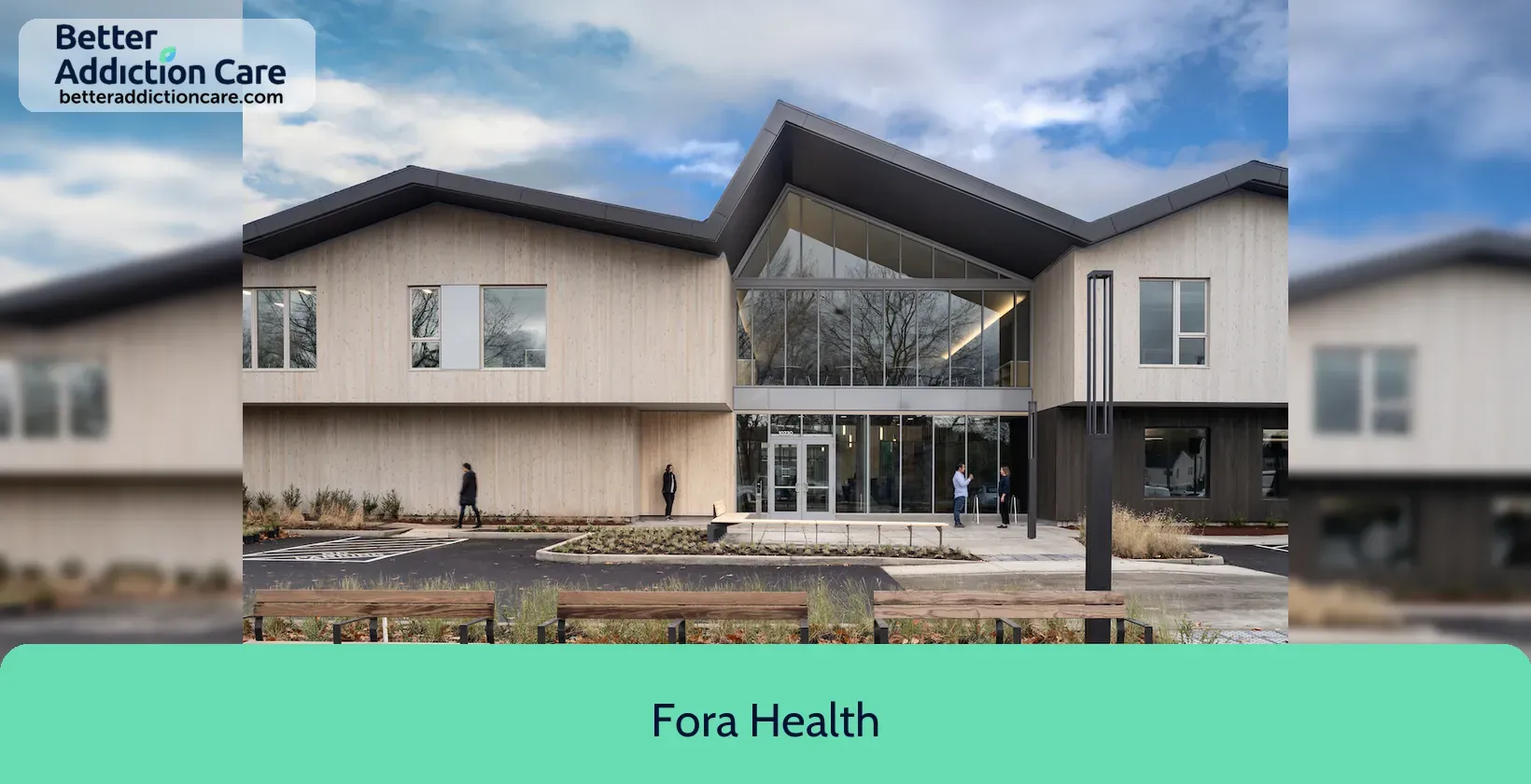
7.43
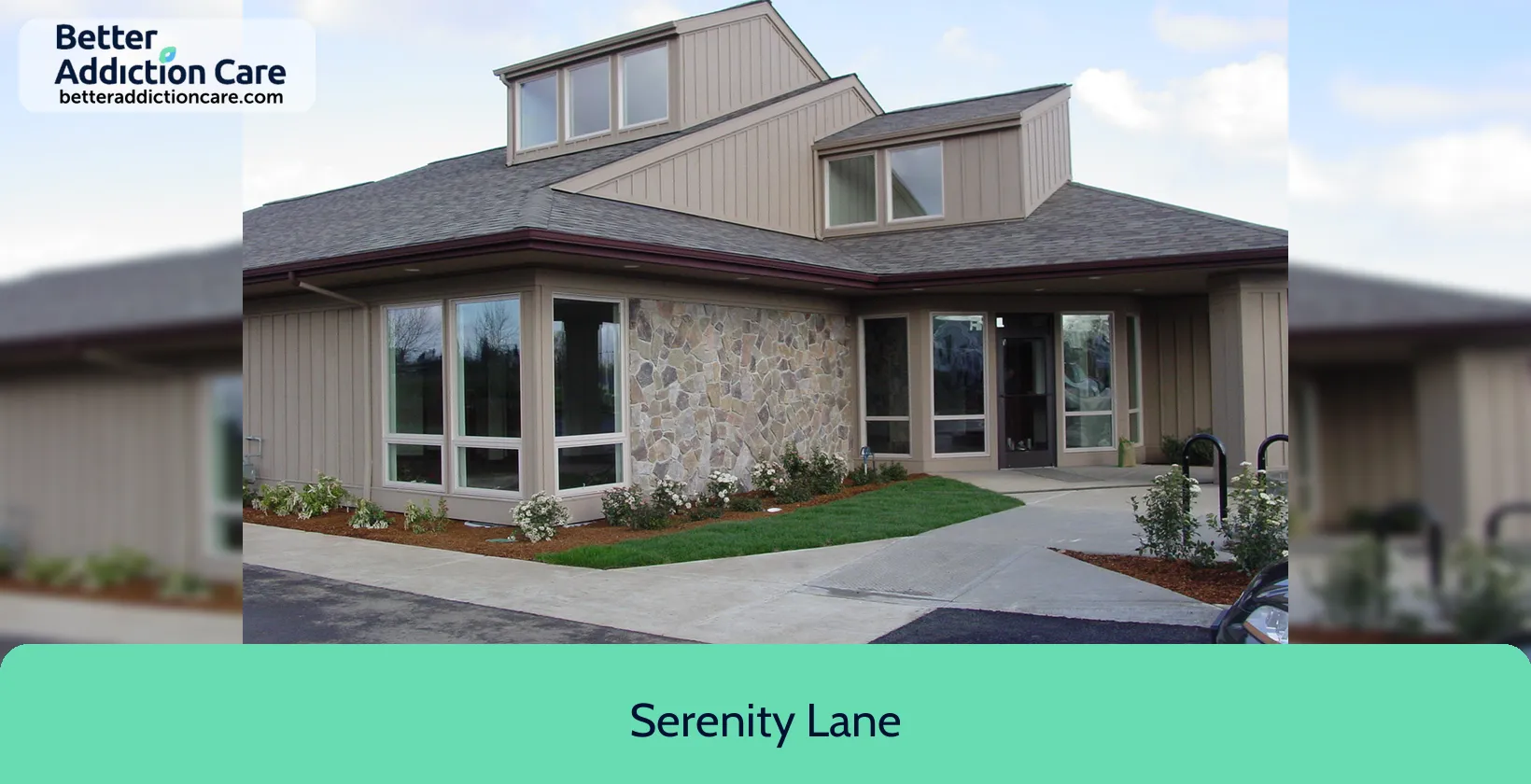
6.92
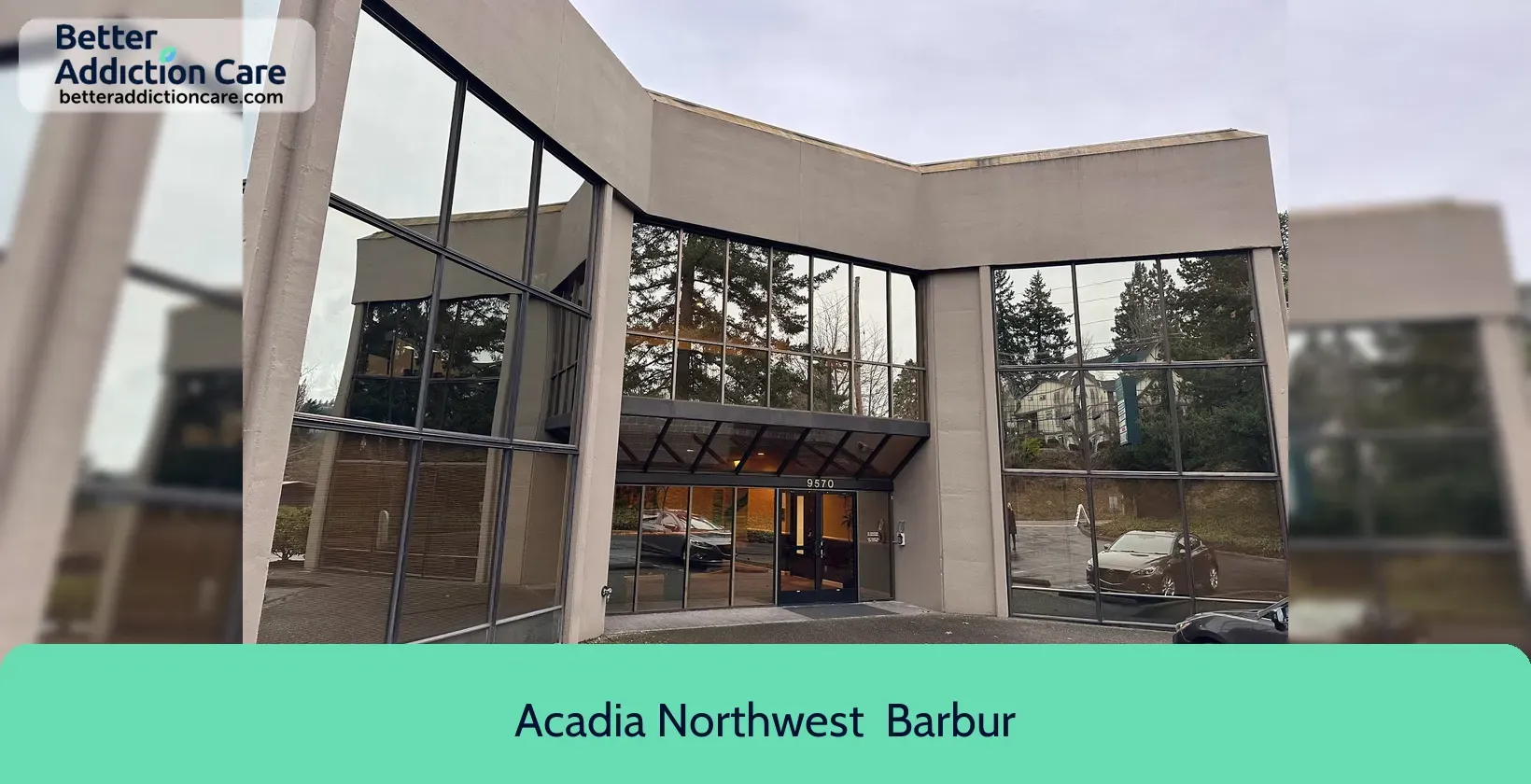
6.80
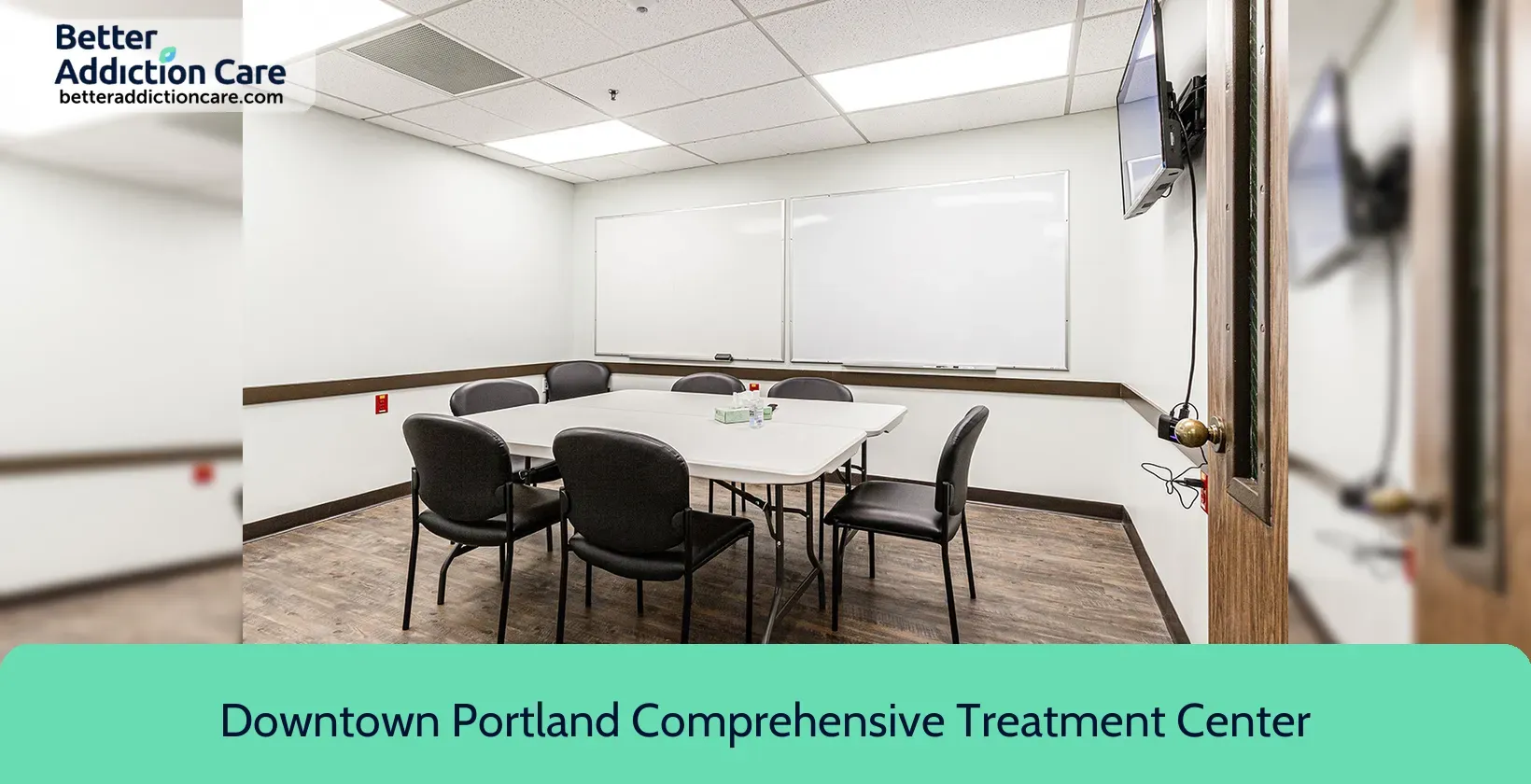
7.20
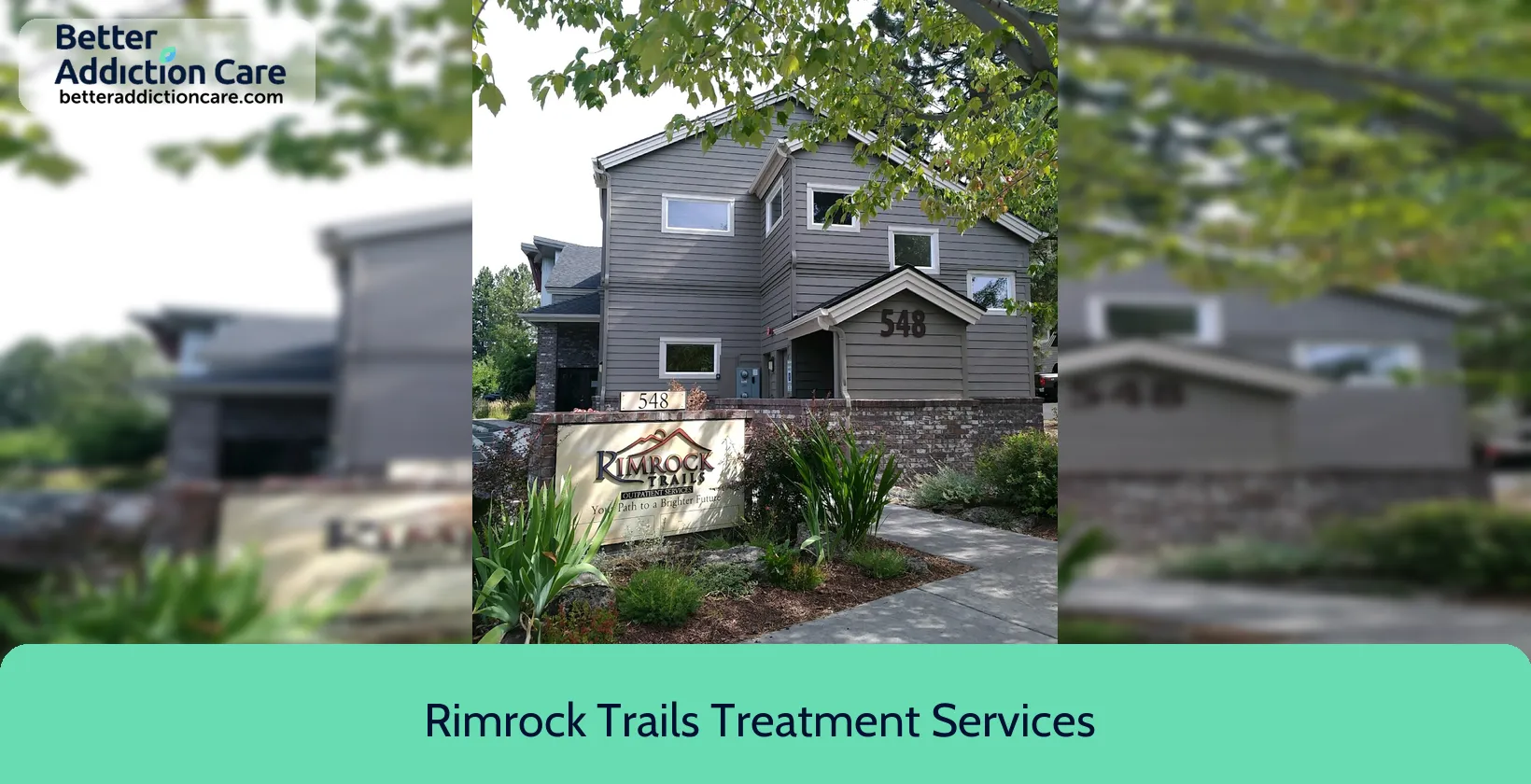
6.92
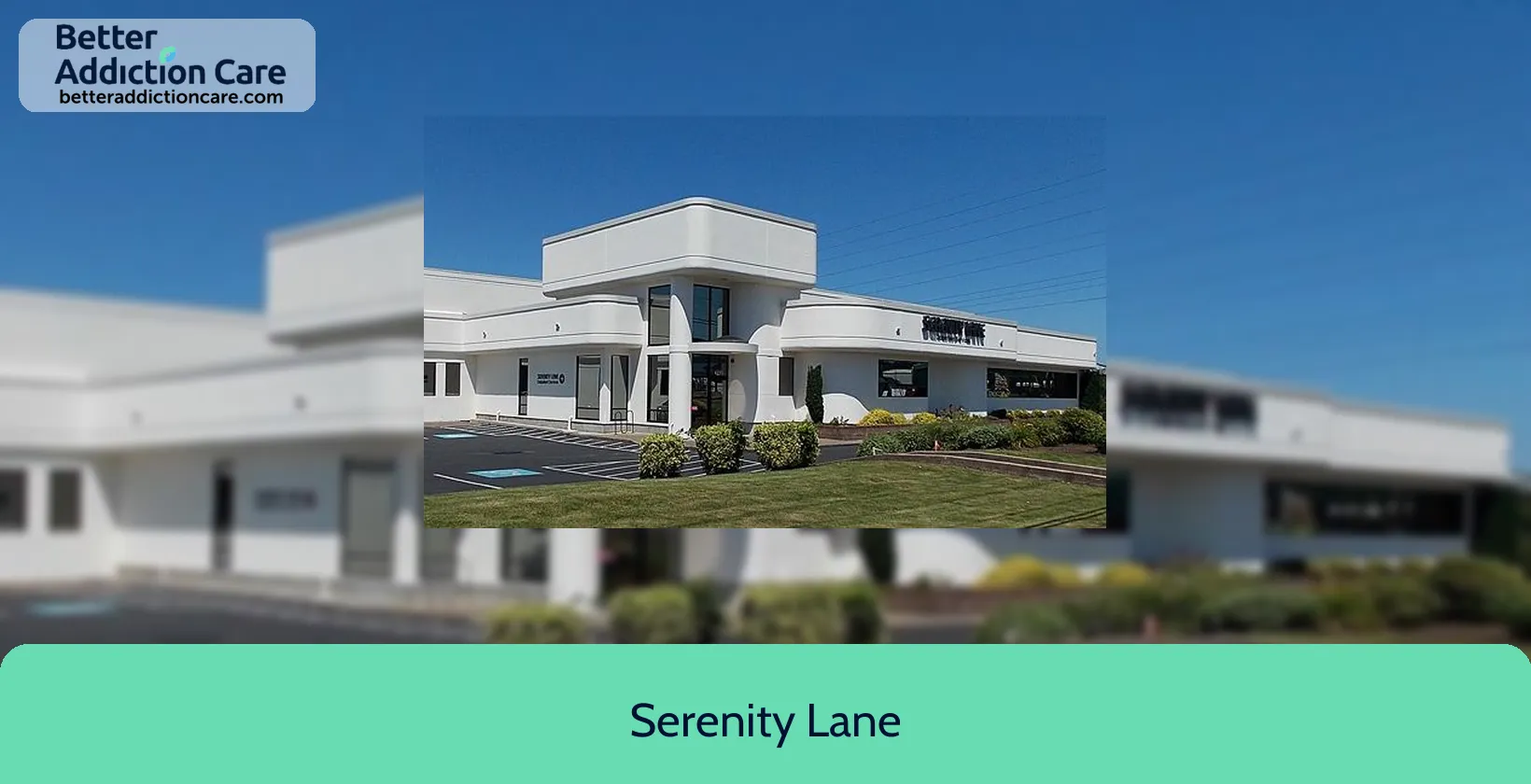
7.49
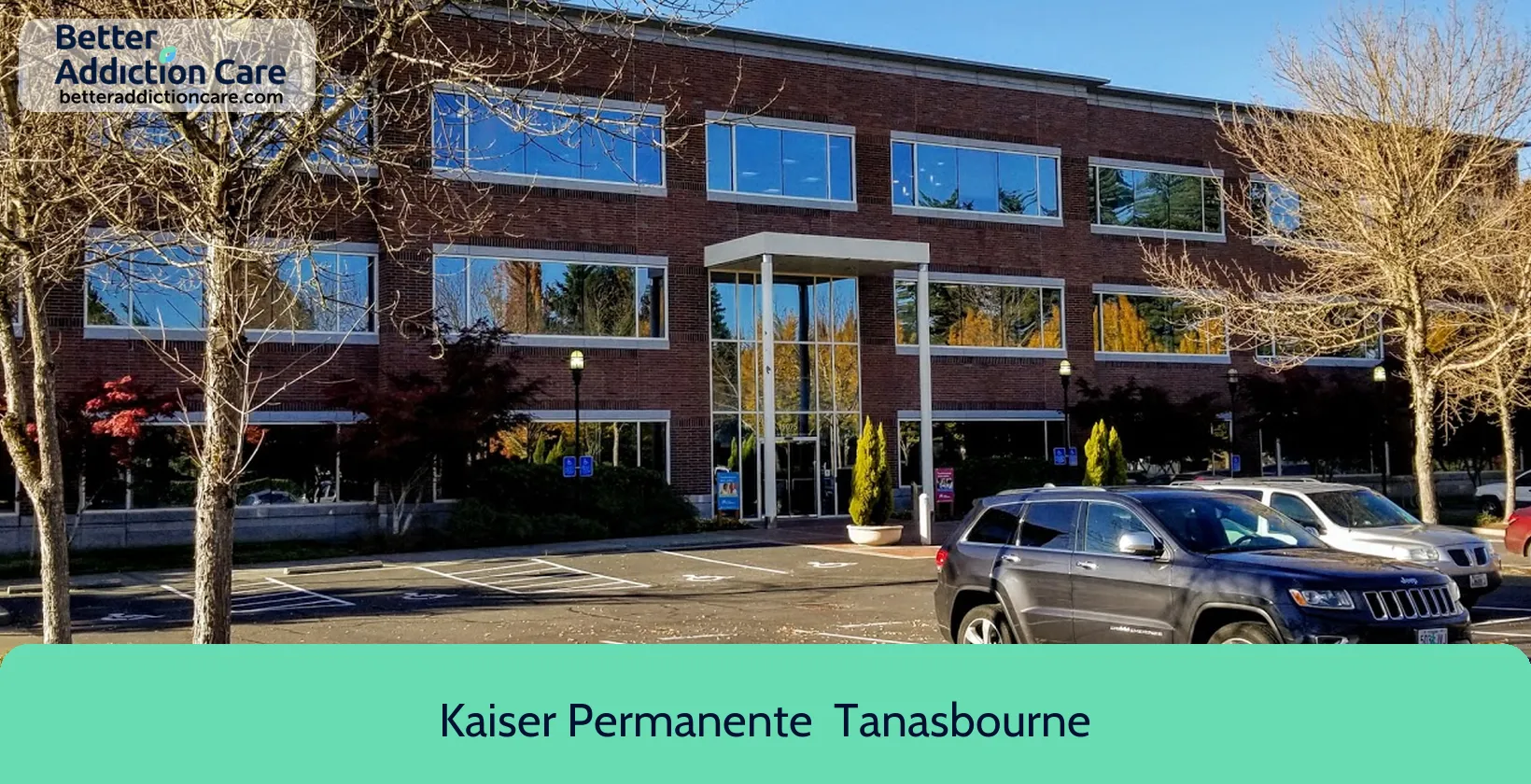
7.20
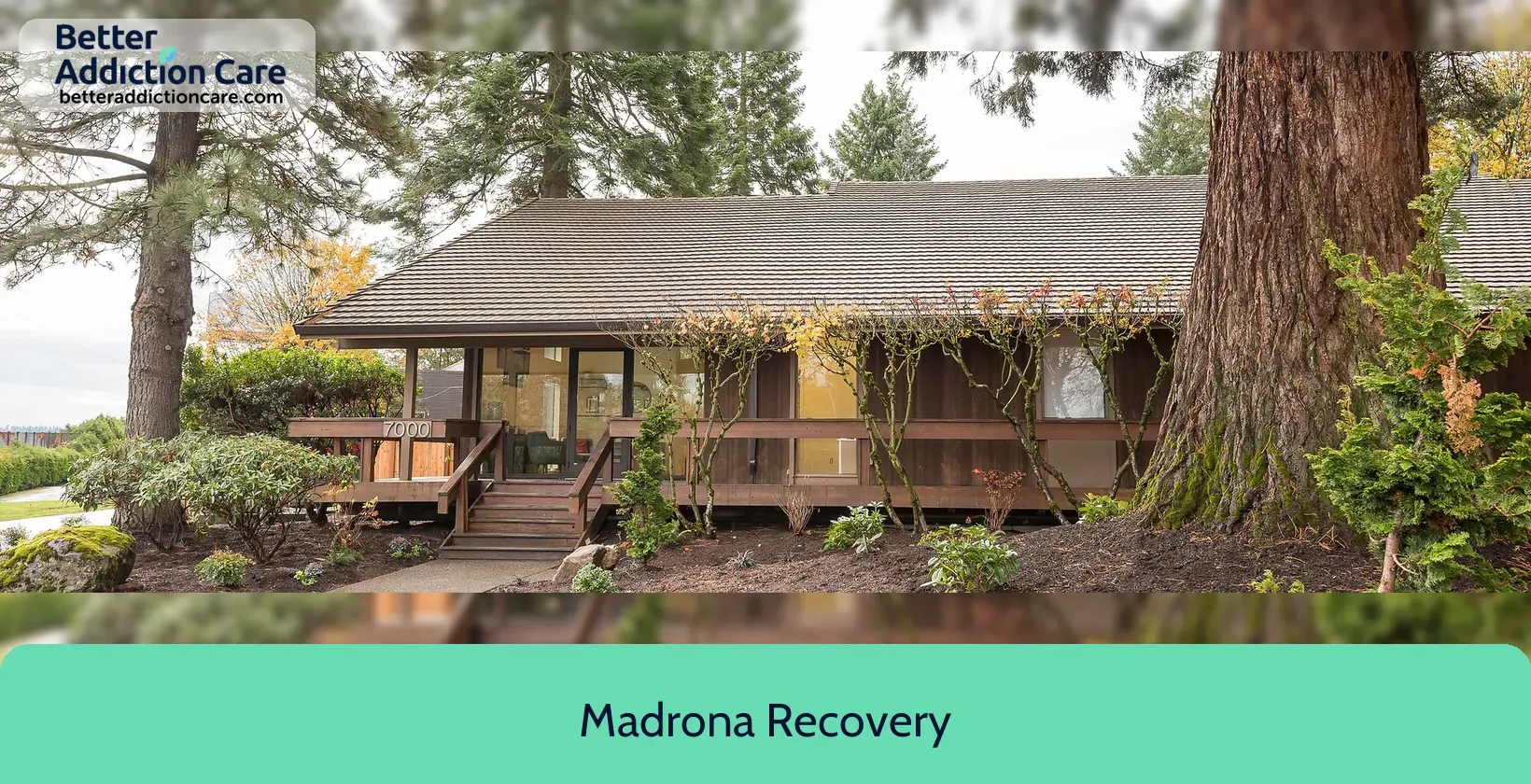
7.68
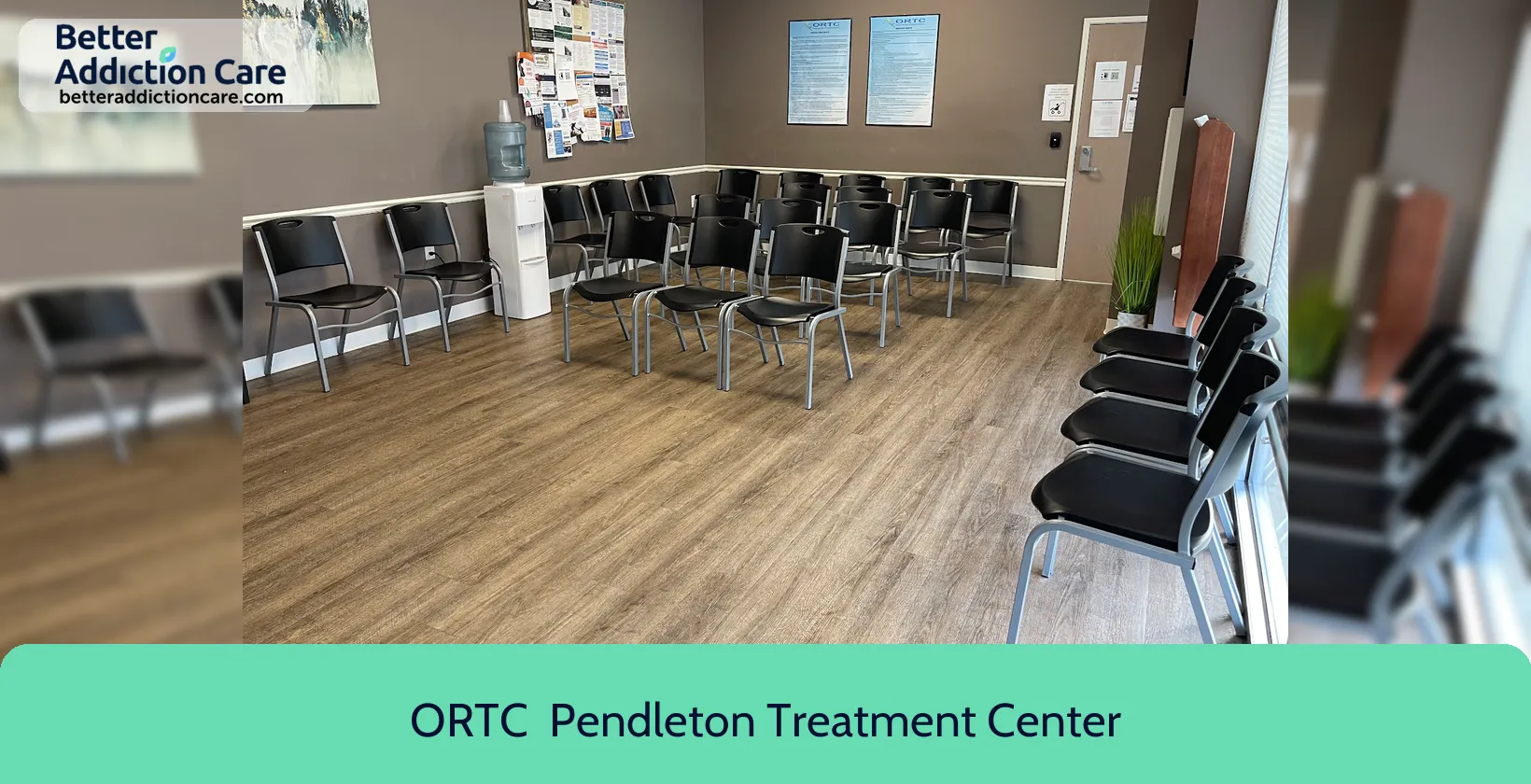
7.23
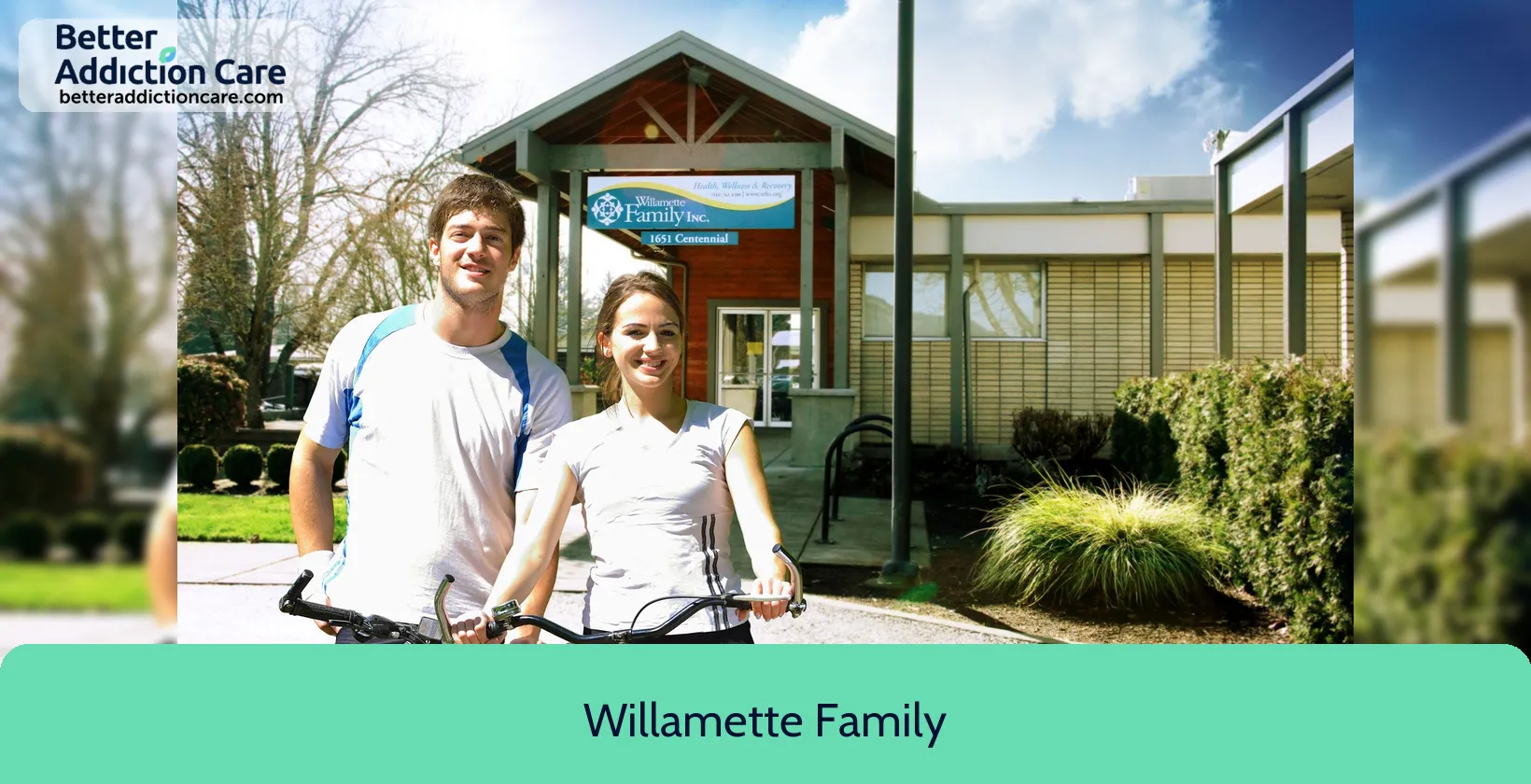
6.86
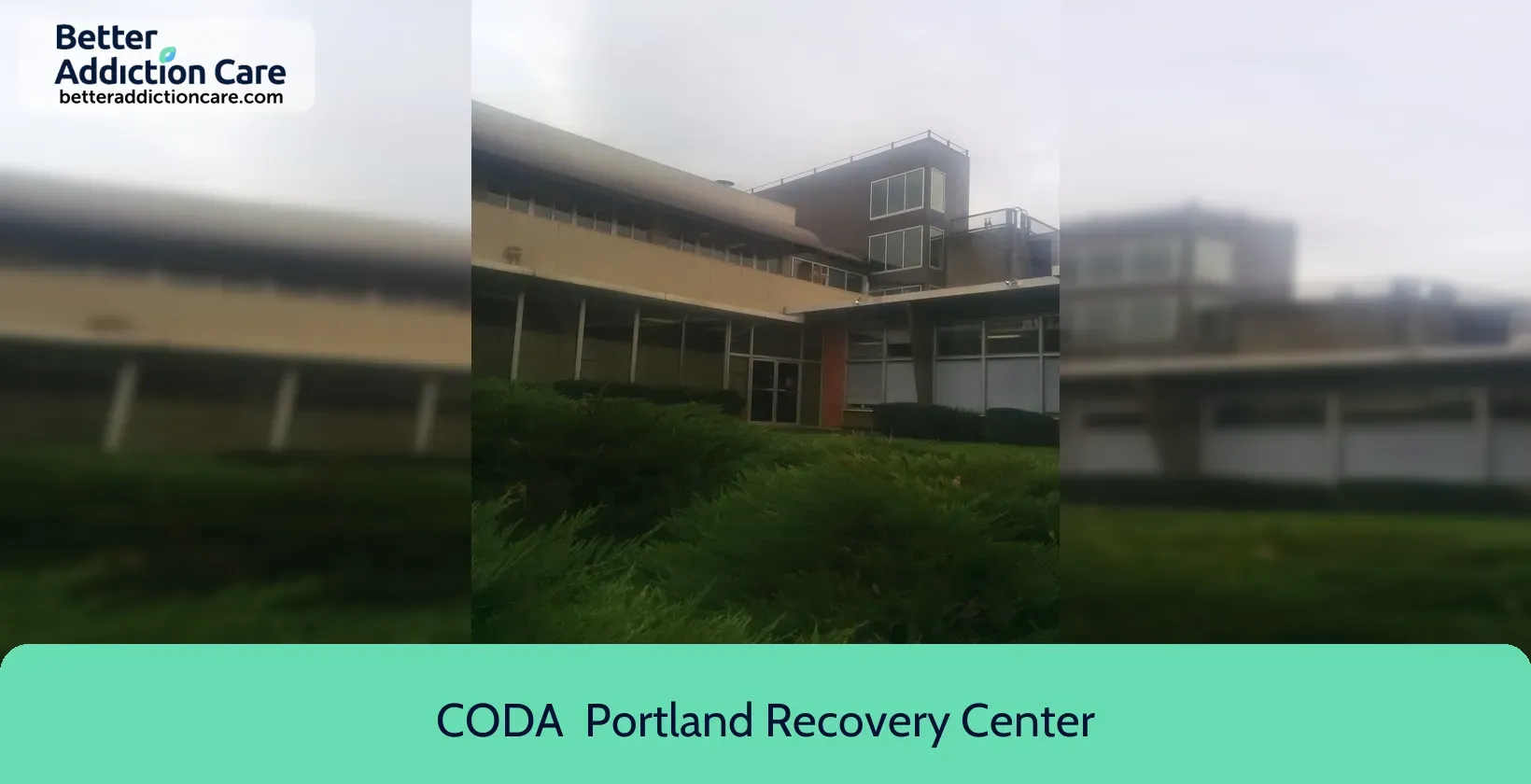
7.43
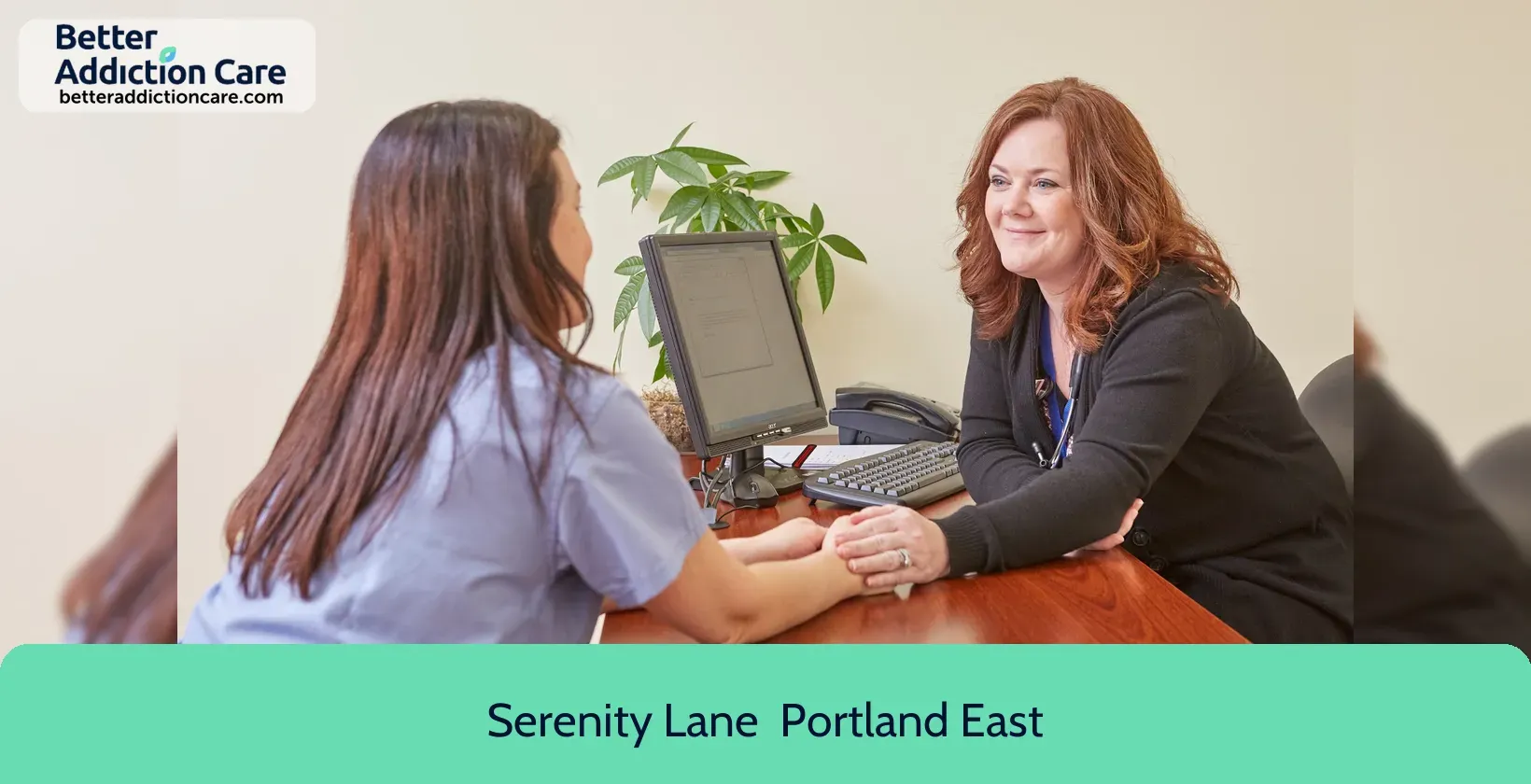
6.96
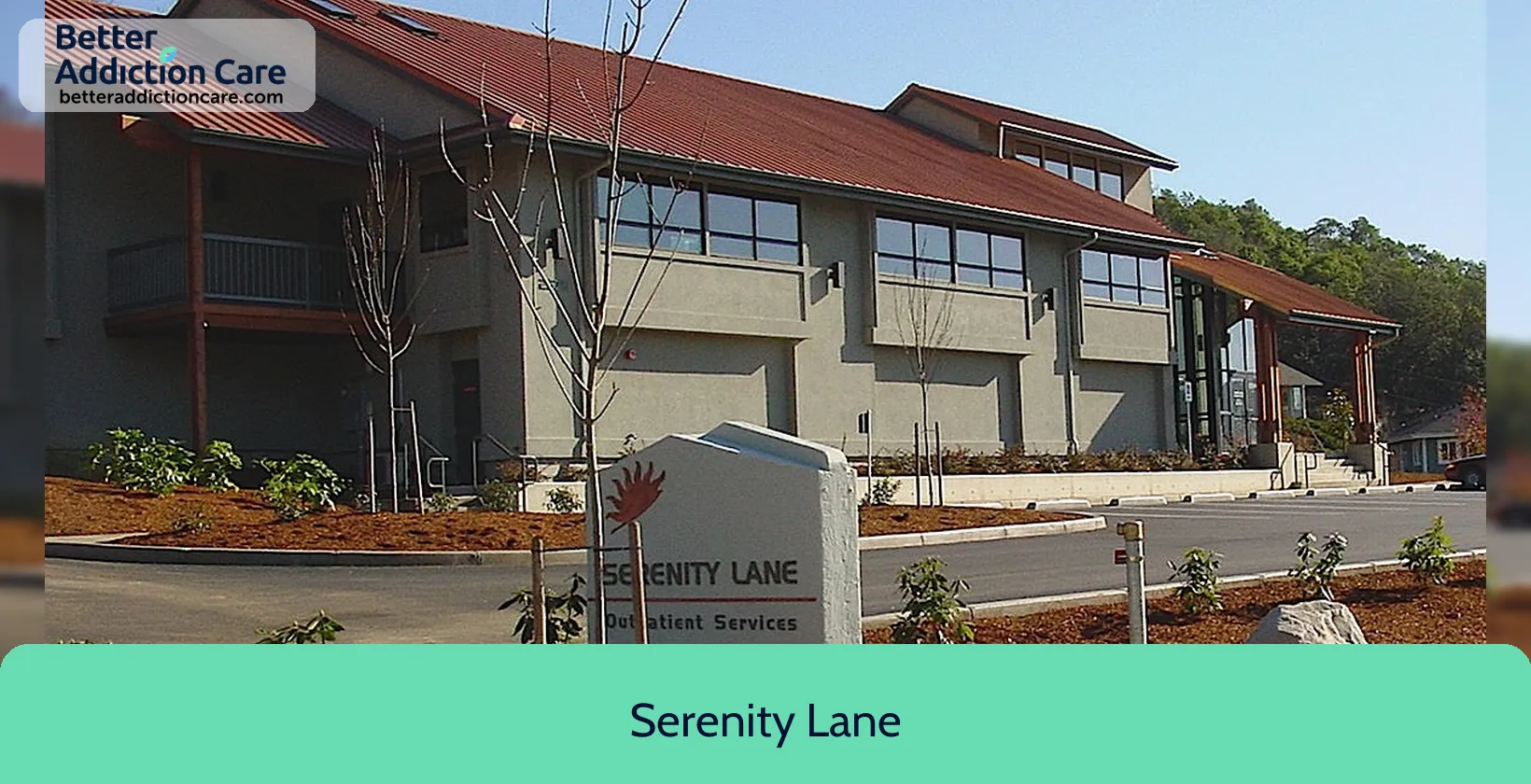
7.16
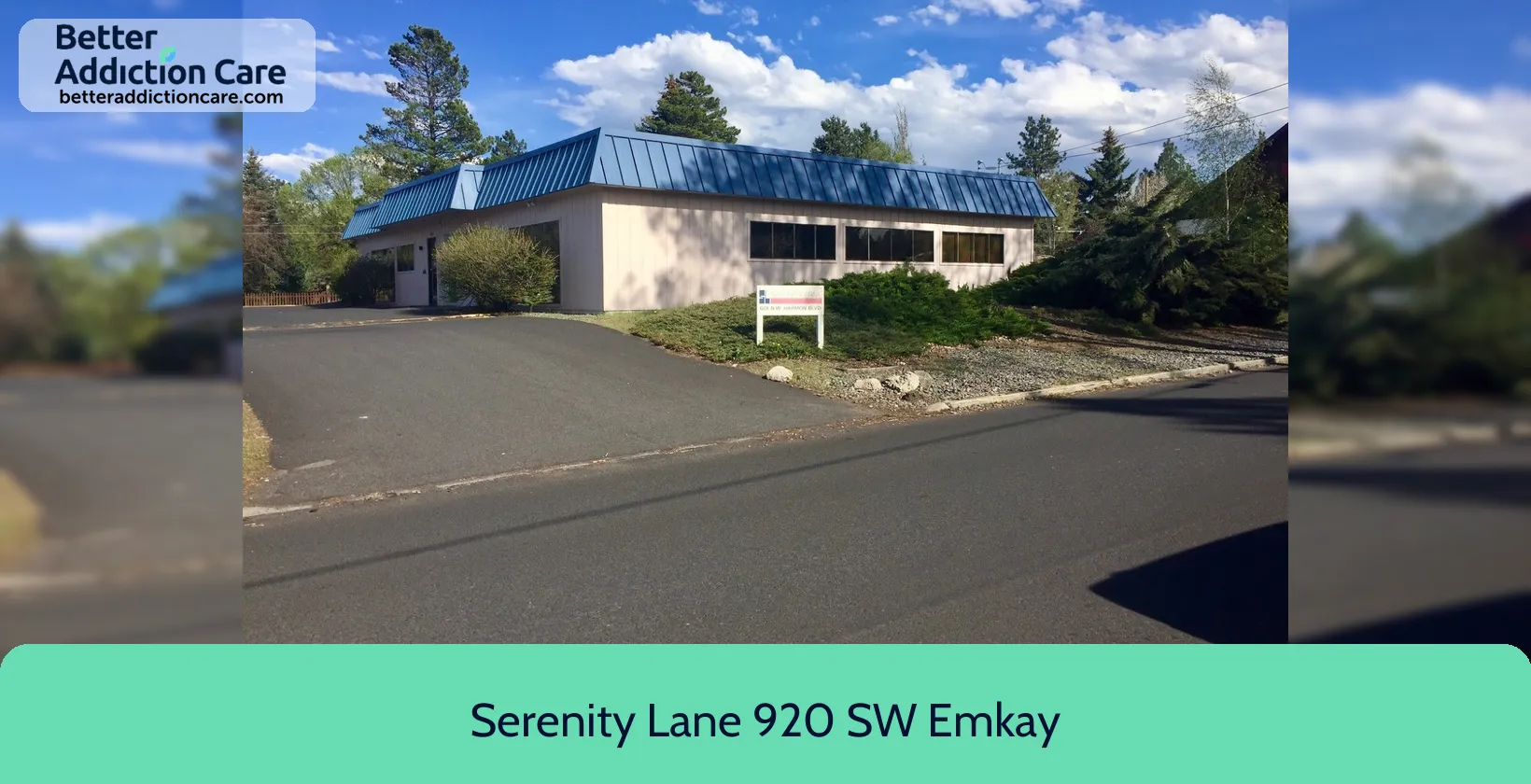
6.92
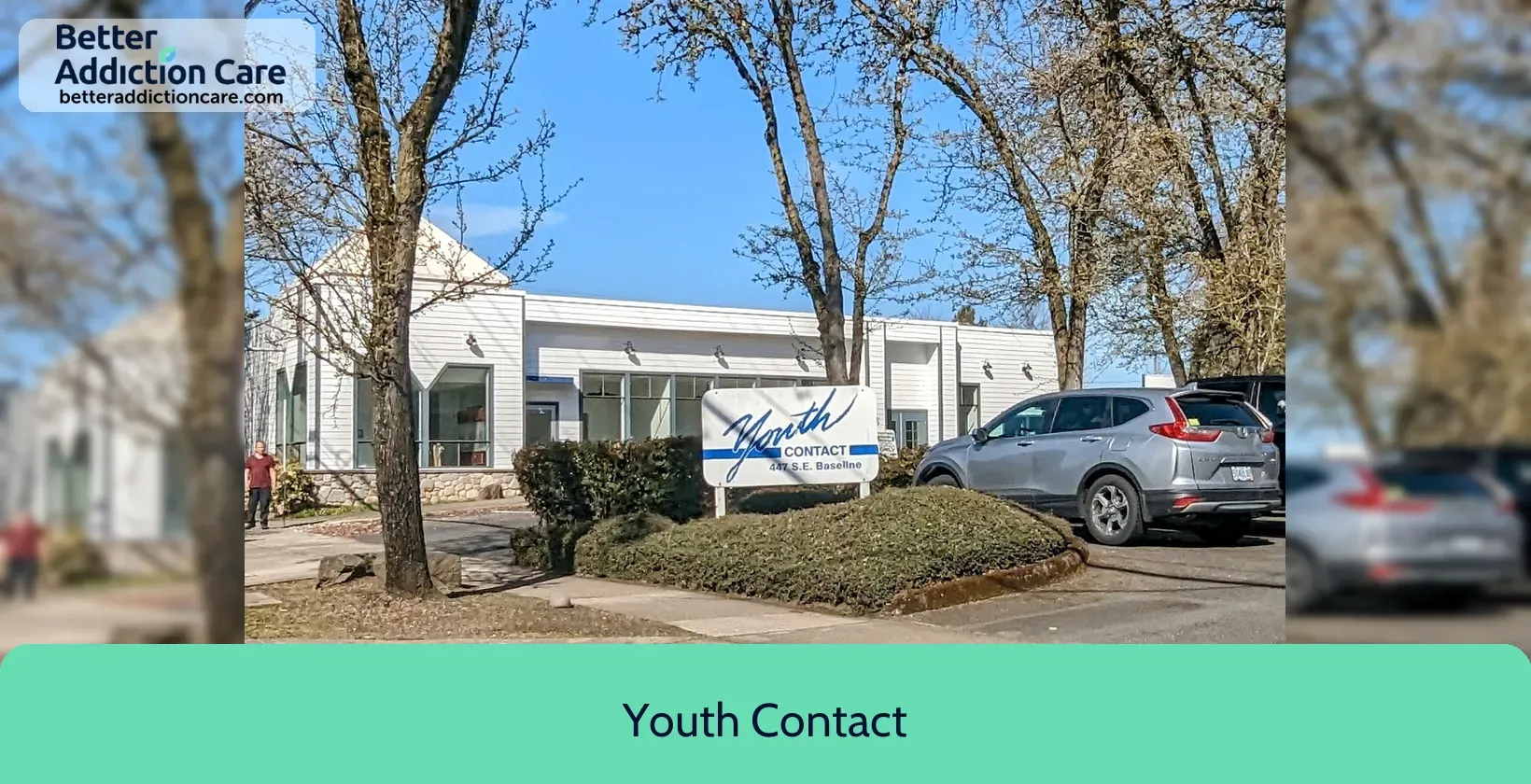
6.65
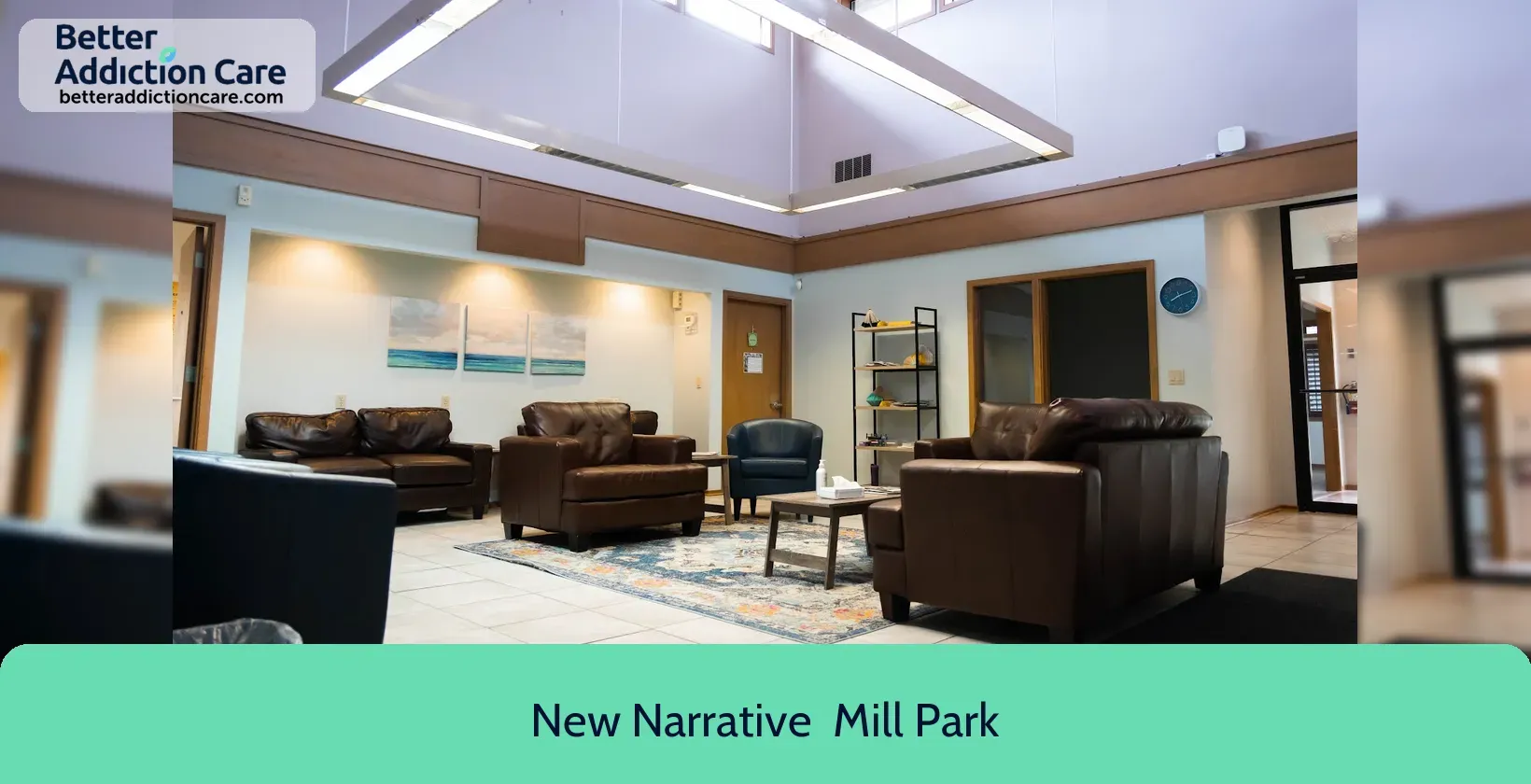
6.68
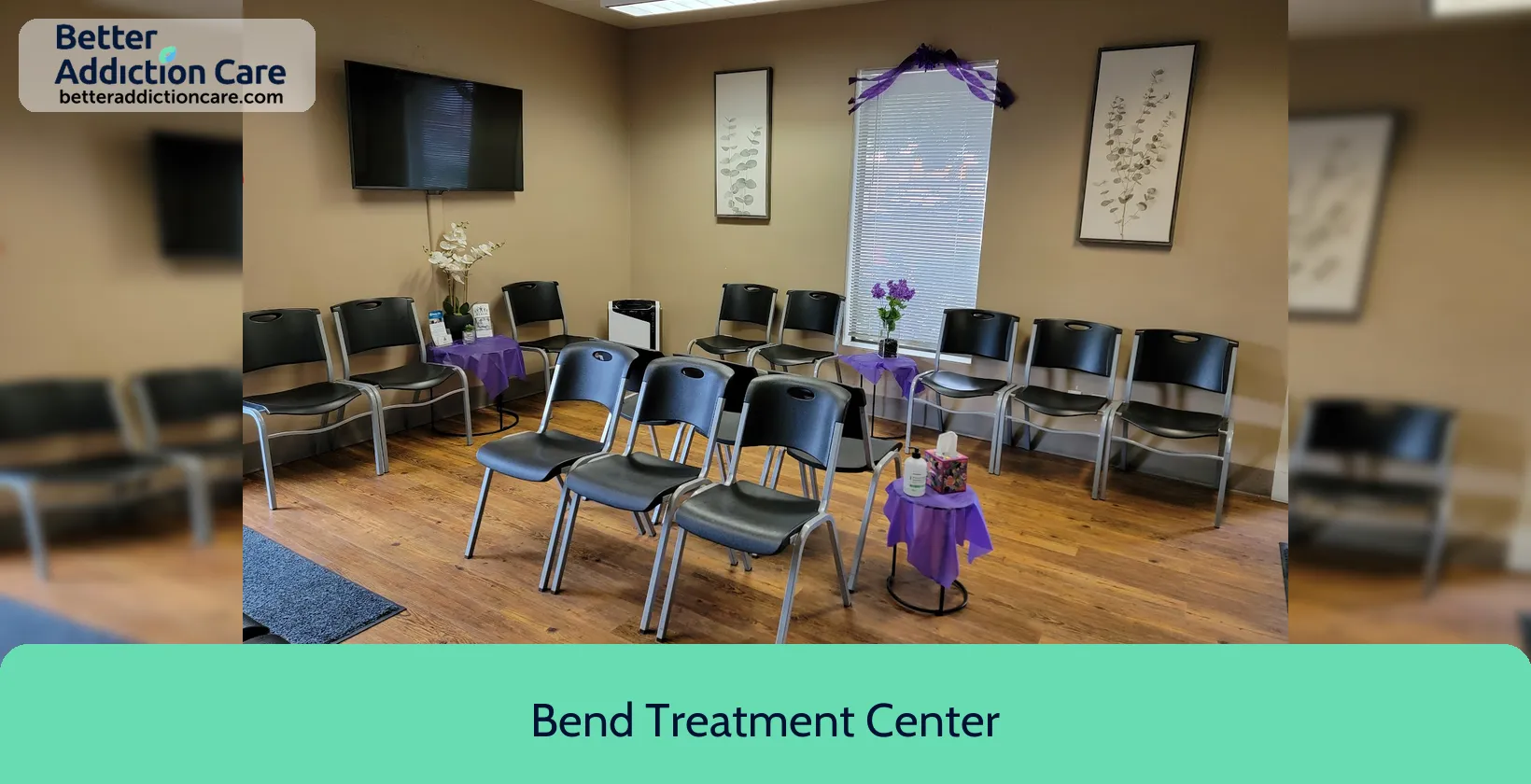
7.23
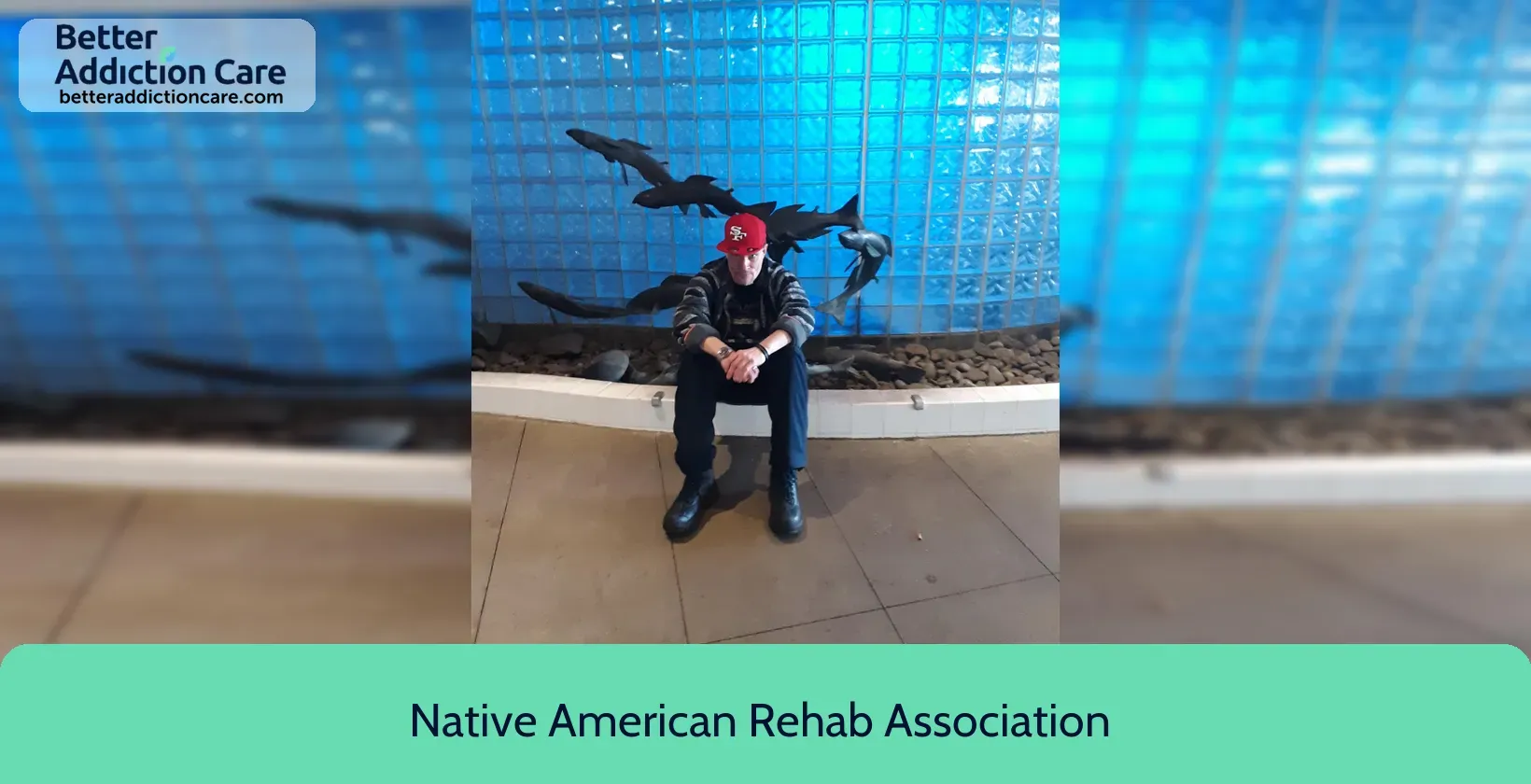
6.68
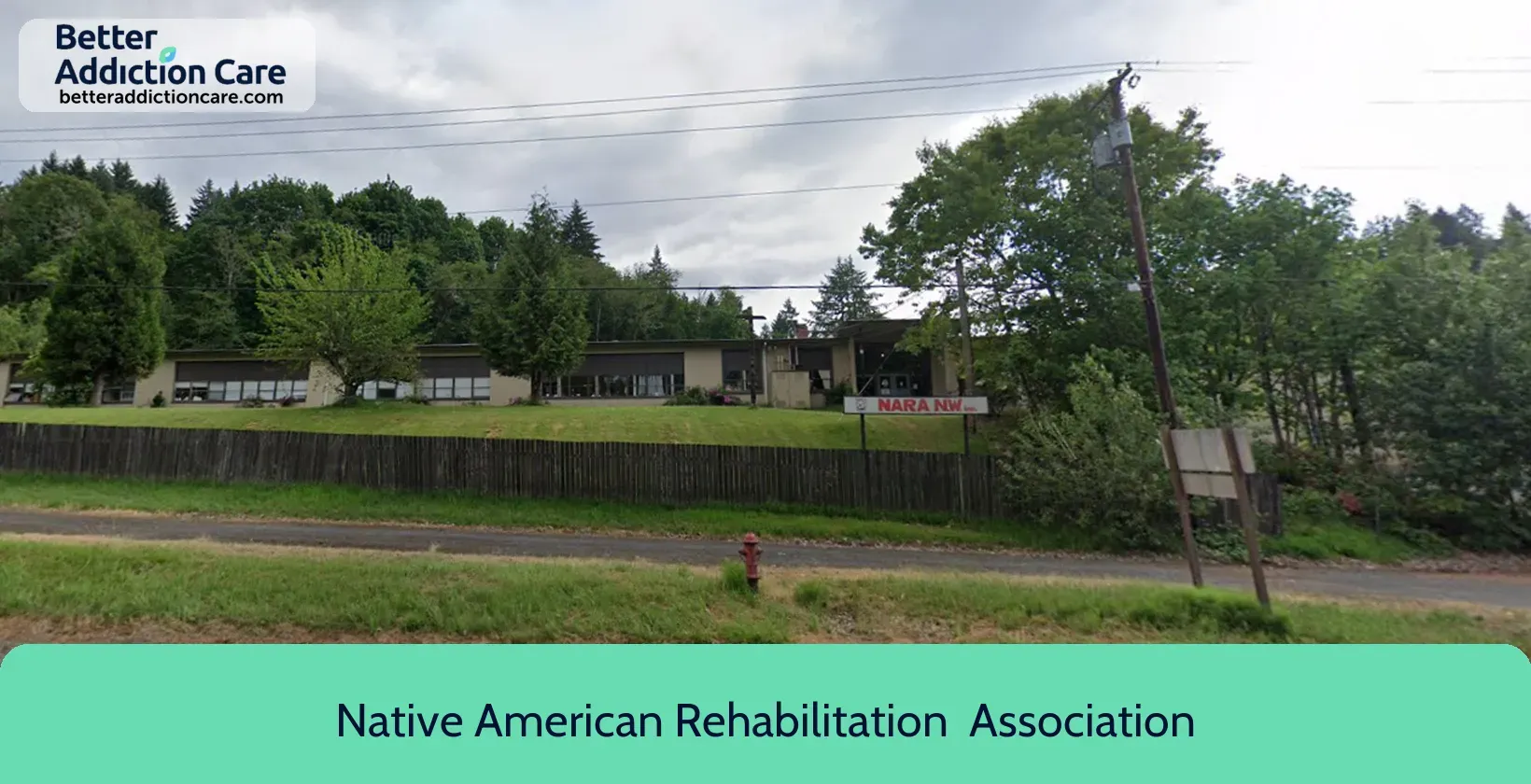
7.26
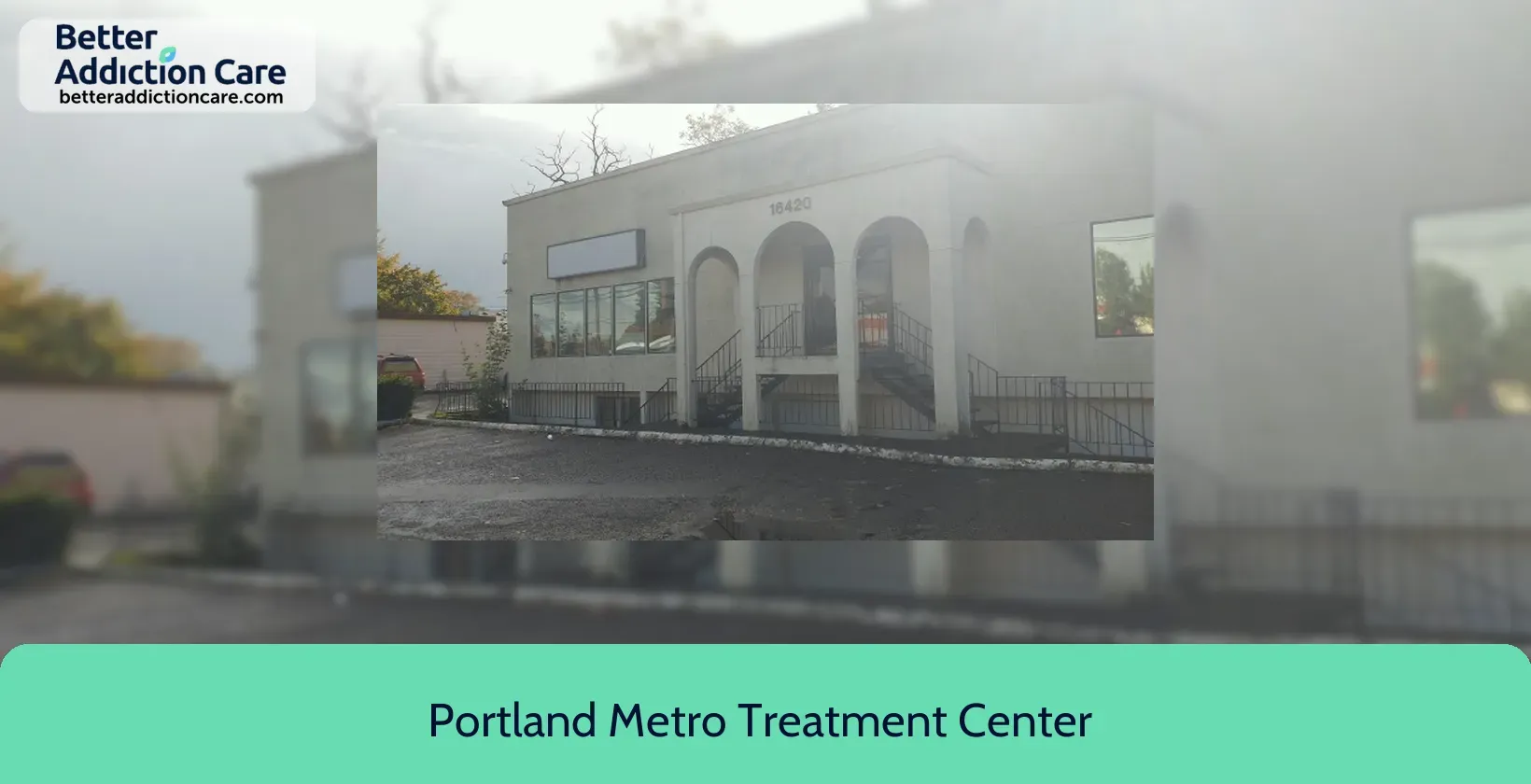
7.10

6.97
Substance abuse and Mental Health facilities Report for Oregon
42nd
Cheapest To Most Expensive State Rank
265
Substance Abuse Facilities
20,268
Number of Patients Annually
19,520
Annual Enrollments
$33M
Spent on Outpatient Services (Million)
$1,704.00
Avg Outpatient Rehab Cost
705
Residential Admissions
$41M
Spent on Residential Treatment (Million)
$58,894.00
Residential Rehab Pay (Up To)
43
Total Patients
1
Free Drug Rehab Facilities
Alcoholism, Drug Abuse, Mental Health, and Treatment in Oregon
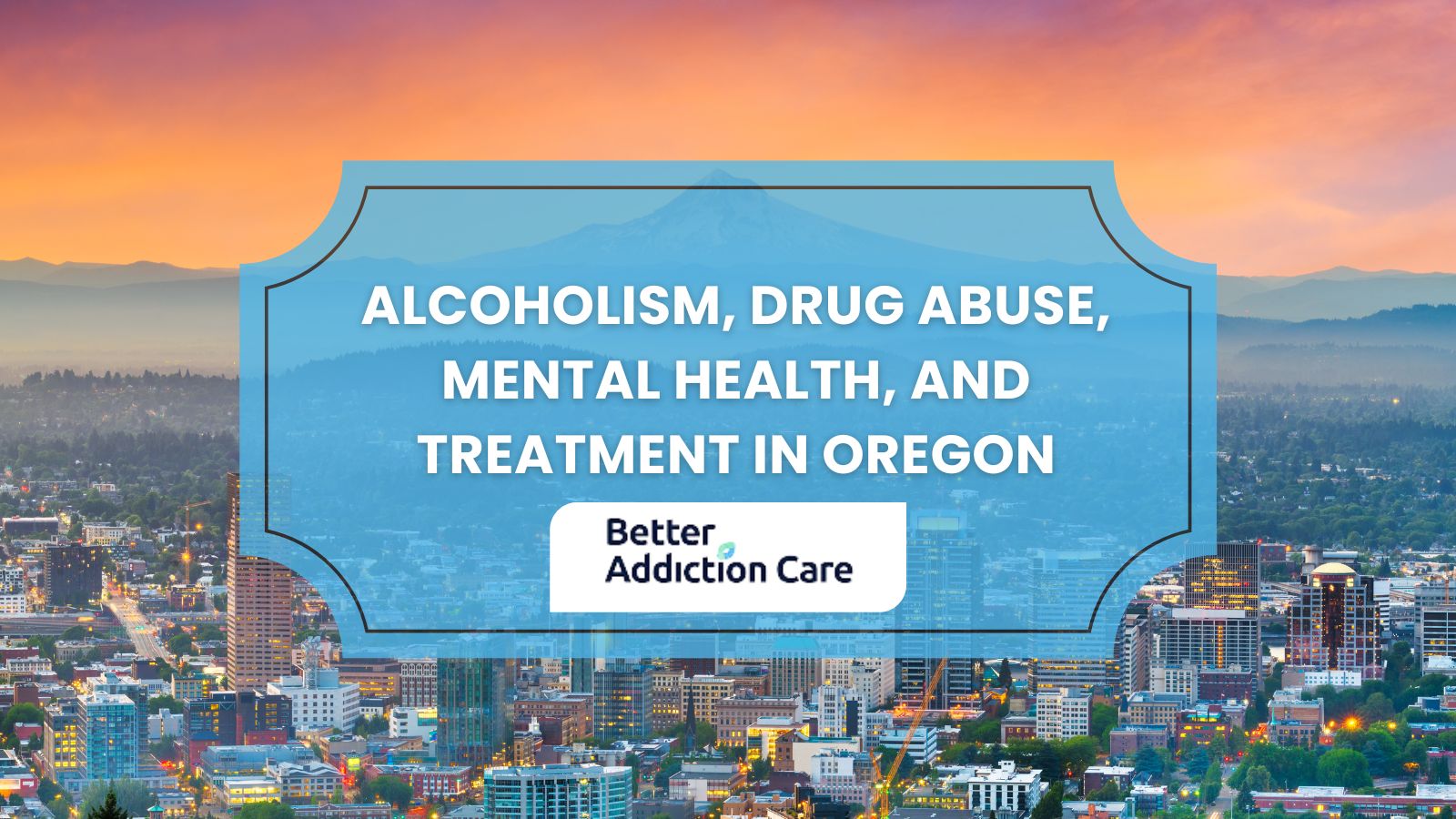
What are the main addictions people in Oregon suffer from?
The main addictions people in Oregon suffer from include:
- Alcohol Addiction: 518,000 individuals, equating to 12.23% of the population, experience alcohol addiction. This includes 91,375 (17.64%) of males and 63,662 (12.29%) of females.
- Marijuana Addiction: 1,323,728 (31.22%) of individuals aged 12 and older have used marijuana in the past year. This includes 184,792 (13.96%) of males, 676,689 (51.12%) of females.
- Prescription Opioid Addiction: 189,000 individuals, or 4.46% of the population, have misused prescription opioids in the past year. 103,000 (54%) males are higher in number as compared to 86,000 (45%) females.
- Methamphetamine Addiction: 82,000 people aged 12 and older, equating to 1.93% of individuals, have used methamphetamine in the past year. 45,000 (55%) males are higher in number as compared to 37,000 (45%) females.
- Cocaine Addiction: 86,000 individuals, or 2.03% of the population, have used cocaine in the past year. 49,000 (57%) males are higher in number as compared to 37,000 (43%) females.
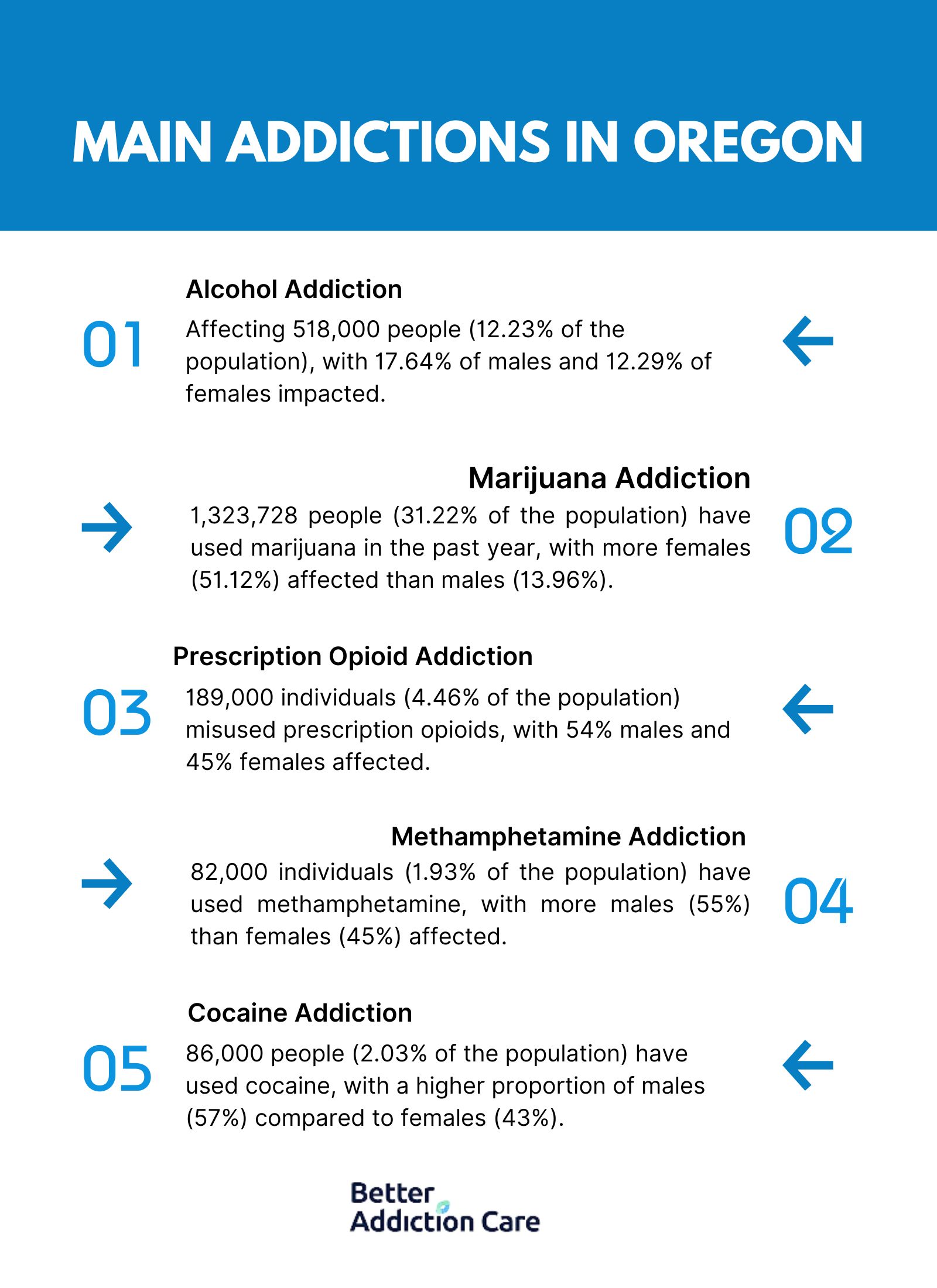
What is the cost of rehab centers in Oregon?
The cost of rehab centers in Oregon is $58,894. On average, a 30-day inpatient rehab program costs $58,000 (66%), while outpatient services are significantly less expensive, averaging $1,704 (1.9%).
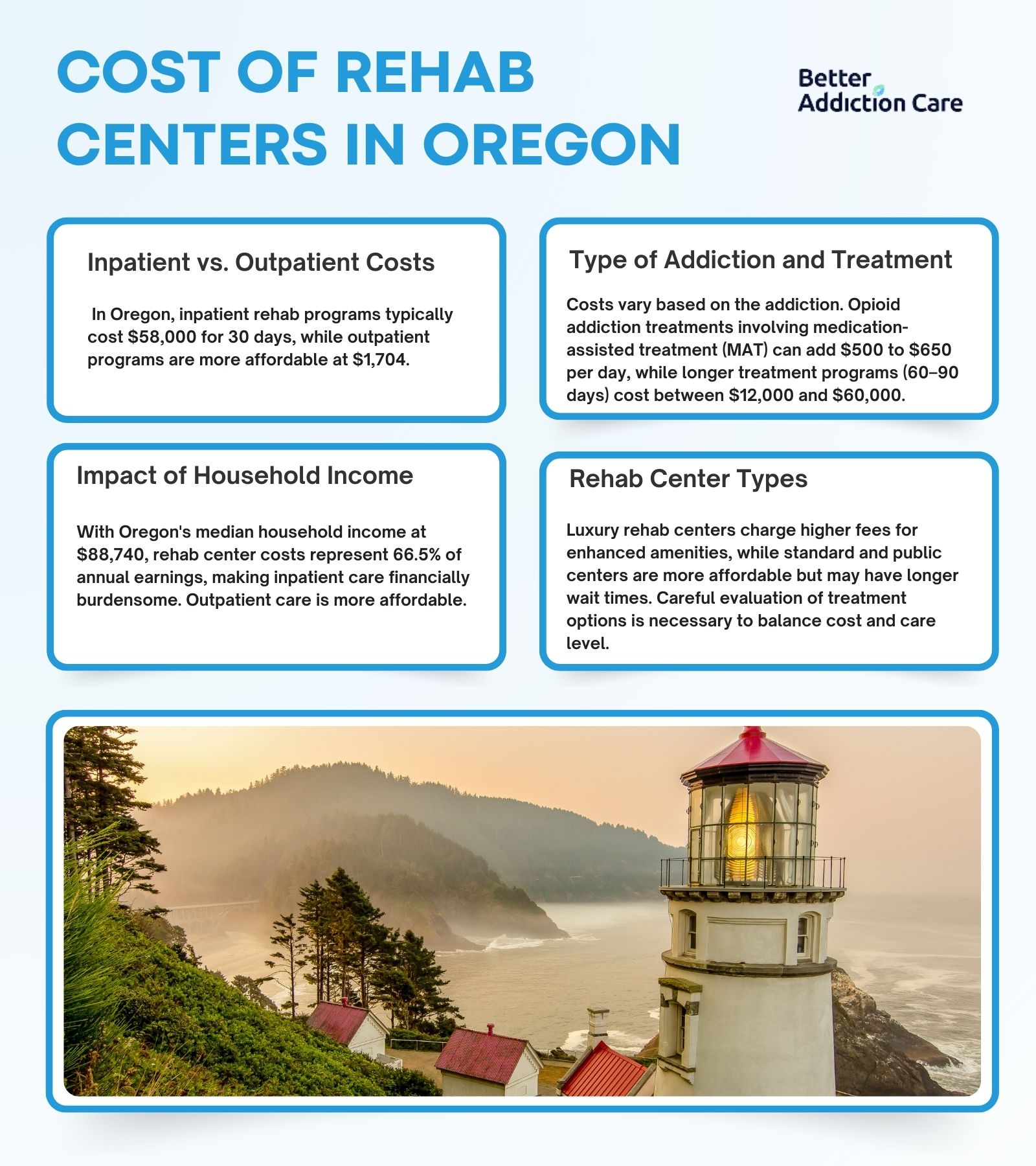
The cost of rehab centers in Oregon varies depending on the type and duration of treatment as well as the addiction being addressed. For example, opioid addiction treatments often involve medication-assisted treatment (MAT) with medications like methadone or buprenorphine, which add $500 to $650 per day. The duration of the program plays a critical role, with longer treatment periods such as 60- to 90-day programs costing between $12,000 and $60,000, with an average of $36,000.
Oregon’s median household income is $88,740. The cost of rehab centers in Oregon represents 66.5% of the median income, making it a significant expense for many families. Outpatient services are comparatively more affordable, accounting for 1.9% of the median income. Affordability remains a key challenge, particularly for inpatient treatments, which drain financial resources quickly.
The type of rehab center also impacts costs significantly. Luxury or private facilities offering enhanced amenities tend to charge higher fees, while standard centers are more economical. Publicly funded options provide an affordable alternative but often come with longer wait times or limited capacity. These variables highlight the importance of evaluating treatment options carefully to balance affordability and the level of care required.
What is the cost of LGBTQ+ rehab centers in Oregon?
The cost of LGBTQ+ rehab centers in Oregon is $56,500. On average, a 30-day inpatient rehab program costs $58,000 (66%), while outpatient services are significantly less expensive, averaging $1,704 (1.9%).
The cost of LGBTQ+ rehab centers in Oregon varies depending on the type and duration of treatment as well as the addiction being addressed. For example, opioid addiction treatments often involve medication-assisted treatment (MAT) with medications like methadone or buprenorphine, which add $500 to $650 per day. The duration of the program plays a critical role, with longer treatment periods such as 60- to 90-day programs costing between $12,000 and $60,000, with an average of $36,000.
Oregon’s median household income is $88,740. The cost of LGBTQ+ rehab centers in Oregon represents 63.6% of the median income, making it a significant expense for many families. Outpatient services are comparatively more affordable, accounting for 1.9% of the median income. Affordability remains a key challenge, particularly for inpatient treatments, which drain financial resources quickly.
The type of LGBTQ+ rehab center also impacts costs significantly. Luxury or private facilities offering enhanced amenities tend to charge higher fees, while standard centers are more economical. Publicly funded options provide an affordable alternative but often come with longer wait times or limited capacity. These variables highlight the importance of evaluating treatment options carefully to balance affordability and the level of care required.
What is the cost of Faith-Based rehab centers in Oregon?
The cost of Faith-Based rehab centers in Oregon is $57,900. On average, a 30-day inpatient rehab program costs $58,000 (66%), while outpatient services are significantly less expensive, averaging $1,704 (1.9%).
The cost of Faith-Based rehab centers in Oregon varies depending on the type and duration of treatment as well as the addiction being addressed. For example, opioid addiction treatments often involve medication-assisted treatment (MAT) with medications like methadone or buprenorphine, which add $500 to $650 per day. The duration of the program plays a critical role, with longer treatment periods such as 60- to 90-day programs costing between $12,000 and $60,000, with an average of $36,000.
Oregon’s median household income is $88,740. The cost of Faith-Based rehab centers in Oregon represents 65% of the median income, making it a significant expense for many families. Outpatient services are comparatively more affordable, accounting for 1.9% of the median income. Affordability remains a key challenge, particularly for inpatient treatments, which drain financial resources quickly.
The type of Faith-Based rehab center also impacts costs significantly. Luxury or private facilities offering enhanced amenities tend to charge higher fees, while standard centers are more economical. Publicly funded options provide an affordable alternative but often come with longer wait times or limited capacity. These variables highlight the importance of evaluating treatment options carefully to balance affordability and the level of care required.
What is the cost of Men-Only rehab centers in Oregon?
The cost of Men-Only rehab centers in Oregon is $57,000. On average, a 30-day inpatient rehab program costs $58,000 (66%), while outpatient services are significantly less expensive, averaging $1,704 (1.9%).
The cost of Men-Only rehab centers in Oregon varies depending on the type and duration of treatment as well as the addiction being addressed. For example, opioid addiction treatments often involve medication-assisted treatment (MAT) with medications like methadone or buprenorphine, which add $500 to $650 per day. The duration of the program plays a critical role, with longer treatment periods such as 60- to 90-day programs costing between $12,000 and $60,000, with an average of $36,000.
Oregon’s median household income is $88,740. The cost of Men-Only rehab centers in Oregon represents 64% of the median income, making it a significant expense for many families. Outpatient services are comparatively more affordable, accounting for 1.9% of the median income. Affordability remains a key challenge, particularly for inpatient treatments, which drain financial resources quickly.
The type of Men-Only rehab center also impacts costs significantly. Luxury or private facilities offering enhanced amenities tend to charge higher fees, while standard centers are more economical. Publicly funded options provide an affordable alternative but often come with longer wait times or limited capacity. These variables highlight the importance of evaluating treatment options carefully to balance affordability and the level of care required.
What is the cost of Women-Only rehab centers in Oregon?
The cost of Women-Only rehab centers in Oregon is $56,590. On average, a 30-day inpatient rehab program costs $58,000 (66%), while outpatient services are significantly less expensive, averaging $1,704 (1.9%).
The cost of Women-Only rehab centers in Oregon varies depending on the type and duration of treatment as well as the addiction being addressed. For example, opioid addiction treatments often involve medication-assisted treatment (MAT) with medications like methadone or buprenorphine, which add $500 to $650 per day. The duration of the program plays a critical role, with longer treatment periods such as 60- to 90-day programs costing between $12,000 and $60,000, with an average of $36,000.
Oregon’s median household income is $88,740. The cost of Women-Only rehab centers in Oregon represents 63.7% of the median income, making it a significant expense for many families. Outpatient services are comparatively more affordable, accounting for 1.9% of the median income. Affordability remains a key challenge, particularly for inpatient treatments, which drain financial resources quickly.
The type of Women-Only rehab center also impacts costs significantly. Luxury or private facilities offering enhanced amenities tend to charge higher fees, while standard centers are more economical. Publicly funded options provide an affordable alternative but often come with longer wait times or limited capacity. These variables highlight the importance of evaluating treatment options carefully to balance affordability and the level of care required.
What is the cost of Teen rehab centers in Oregon?
The cost of Teen rehab centers in Oregon is $57,900. On average, a 30-day inpatient rehab program costs $58,000 (66%), while outpatient services are significantly less expensive, averaging $1,704 (1.9%).
The cost of Teen rehab centers in Oregon varies depending on the type and duration of treatment as well as the addiction being addressed. For example, opioid addiction treatments often involve medication-assisted treatment (MAT) with medications like methadone or buprenorphine, which add $500 to $650 per day. The duration of the program plays a critical role, with longer treatment periods such as 60- to 90-day programs costing between $12,000 and $60,000, with an average of $36,000.
Oregon’s median household income is $88,740. The cost of Teen rehab centers in Oregon represents 65% of the median income, making it a significant expense for many families. Outpatient services are comparatively more affordable, accounting for 1.9% of the median income. Affordability remains a key challenge, particularly for inpatient treatments, which drain financial resources quickly.
The type of Teen rehab center also impacts costs significantly. Luxury or private facilities offering enhanced amenities tend to charge higher fees, while standard centers are more economical. Publicly funded options provide an affordable alternative but often come with longer wait times or limited capacity. These variables highlight the importance of evaluating treatment options carefully to balance affordability and the level of care required.
What is the cost of Young Adult rehab centers in Oregon?
The cost of Young Adult rehab centers in Oregon is $54,908. On average, a 30-day inpatient rehab program costs $58,000 (66%), while outpatient services are significantly less expensive, averaging $1,704 (1.9%).
The cost of Young Adult rehab centers in Oregon varies depending on the type and duration of treatment as well as the addiction being addressed. For example, opioid addiction treatments often involve medication-assisted treatment (MAT) with medications like methadone or buprenorphine, which add $500 to $650 per day. The duration of the program plays a critical role, with longer treatment periods such as 60- to 90-day programs costing between $12,000 and $60,000, with an average of $36,000.
Oregon’s median household income is $88,740. The cost of Young Adult rehab centers in Oregon represents 62% of the median income, making it a significant expense for many families. Outpatient services are comparatively more affordable, accounting for 1.9% of the median income. Affordability remains a key challenge, particularly for inpatient treatments, which drain financial resources quickly.
The type of Young Adult rehab center also impacts costs significantly. Luxury or private facilities offering enhanced amenities tend to charge higher fees, while standard centers are more economical. Publicly funded options provide an affordable alternative but often come with longer wait times or limited capacity. These variables highlight the importance of evaluating treatment options carefully to balance affordability and the level of care required.
What is the cost of Luxury Rehab centers in Oregon?
The cost of Luxury rehab centers in Oregon is $59,900. On average, a 30-day inpatient rehab program costs $58,000 (66%), while outpatient services are significantly less expensive, averaging $1,704 (1.9%).
The cost of Luxury rehab centers in Oregon varies depending on the type and duration of treatment as well as the addiction being addressed. For example, opioid addiction treatments often involve medication-assisted treatment (MAT) with medications like methadone or buprenorphine, which add $500 to $650 per day. The duration of the program plays a critical role, with longer treatment periods such as 60- to 90-day programs costing between $12,000 and $60,000, with an average of $36,000.
Oregon’s median household income is $88,740. The cost of Luxury rehab centers in Oregon represents 67.5% of the median income, making it a significant expense for many families. Outpatient services are comparatively more affordable, accounting for 1.9% of the median income. Affordability remains a key challenge, particularly for inpatient treatments, which drain financial resources quickly.
The type of Luxury rehab center also impacts costs significantly. Luxury or private facilities offering enhanced amenities tend to charge higher fees, while standard centers are more economical. Publicly funded options provide an affordable alternative but often come with longer wait times or limited capacity. These variables highlight the importance of evaluating treatment options carefully to balance affordability and the level of care required.
What is the cost of Dual Diagnosis rehab centers in Oregon?
The cost of Dual Diagnosis rehab centers in Oregon is $55,500. On average, a 30-day inpatient rehab program costs $58,000 (66%), while outpatient services are significantly less expensive, averaging $1,704 (1.9%).
The cost of Dual Diagnosis rehab centers in Oregon varies depending on the type and duration of treatment as well as the addiction being addressed. For example, opioid addiction treatments often involve medication-assisted treatment (MAT) with medications like methadone or buprenorphine, which add $500 to $650 per day. The duration of the program plays a critical role, with longer treatment periods such as 60- to 90-day programs costing between $12,000 and $60,000, with an average of $36,000.
Oregon’s median household income is $88,740. The cost of Dual Diagnosis rehab centers in Oregon represents 62.5% of the median income, making it a significant expense for many families. Outpatient services are comparatively more affordable, accounting for 1.9% of the median income. Affordability remains a key challenge, particularly for inpatient treatments, which drain financial resources quickly.
The type of Dual Diagnosis rehab center also impacts costs significantly. Luxury or private facilities offering enhanced amenities tend to charge higher fees, while standard centers are more economical. Publicly funded options provide an affordable alternative but often come with longer wait times or limited capacity. These variables highlight the importance of evaluating treatment options carefully to balance affordability and the level of care required.
Is drug abuse and addiction a problem in Oregon?
Yes, drug abuse and addiction is a problem in Oregon. One reason is the high prevalence of substance addiction, with 12% of residents aged 12 and older reporting issues related to drugs or alcohol, one of the highest rates in the United States. Another contributing factor is the surge in opioid and methamphetamine misuse; opioid overdose deaths in Oregon increased by 49% from 2021 to 2024, reflecting the growing severity of the crisis. The widespread availability of illicit drugs, particularly fentanyl, has exacerbated addiction rates and overdose incidents. Over the years, Oregon's drug-related deaths have steadily risen, from 479 in 2019 to over 800 in 2024, marking a significant and concerning trend. This data underscores the urgent need for enhanced prevention, treatment, and policy measures to address the growing issue of drug abuse and addiction in Oregon.
Is alcoholism a problem in Oregon?
Yes, alcoholism is a problem in Oregon. One reason is Oregon's high rate of alcohol consumption, with over 18% of adults engaging in binge drinking, placing Oregon among the states with the highest rates of excessive alcohol use. Another factor is the growing prevalence of alcohol addiction, with 12% of residents aged 12 and older experiencing issues related to alcohol dependence or abuse. Alcohol-related deaths have steadily increased, with fatalities rising from 1,200 in 2019 to over 1,600 in 2024, reflecting a 33% increase over seven years. These trends indicate a persistent and worsening challenge, highlighting the need for improved education, intervention, and treatment strategies to combat alcoholism in Oregon.
Is Mental Health a problem in Oregon?
Yes, mental health is a problem in Oregon. One reason is Oregon's consistently high prevalence of mental health disorders, with nearly 24% of adults experiencing a mental illness annually, the highest rate in the United States. Another contributing factor is the severe shortage of mental health professionals, with Oregon ranking among the states with the fewest mental health care providers per capita. Suicide rates have been alarmingly high, with the rate increasing by nearly 28% between 2014 and 2024, and suicide now being the second leading cause of death for individuals aged 10 to 34 in the Oregon. Over the years, the number of adults reporting unmet mental health needs has also grown, from 18% in 2019 to over 23% in 2024. These statistics underscore the critical need for expanded access to mental health services and greater investment in prevention and treatment programs in Oregon.
Can you travel to Oregon for rehab?
Yes, you can travel to Oregon for rehab, and there are compelling reasons to consider Oregon for treatment. Firstly, Oregon offers a serene and diverse natural environment, including forests, mountains, and coastal areas, which promote healing and provide a calming backdrop for recovery. Secondly, Oregon has a strong network of specialized treatment facilities that focus on holistic and evidence-based approaches, addressing both substance use and co-occurring mental health disorders. Thirdly, Oregon's progressive drug policies and supportive community resources create an environment where individuals seek help without stigma, offering innovative programs that emphasize recovery and reintegration. These unique aspects make Oregon a distinctive and appealing destination for those seeking effective rehab.
Can addiction be treated in Oregon?
Yes, addiction can be treated in Oregon for several reasons. Firstly, Oregon is home to a wide range of treatment centers that offer evidence-based approaches, including medication-assisted treatment (MAT), behavioral therapies, and holistic care. Secondly, Oregon has made significant investments in expanding access to addiction services through Medicaid and other state-funded programs, ensuring treatment is available to more residents.

Thirdly, the supportive recovery community in Oregon, combined with progressive policies focused on rehab rather than
Alcoholism, Drug Abuse, Mental Health, and Treatment in Oregon

What are the main addictions people in Oregon suffer from?
The main addictions people in Oregon suffer from include:
- Alcohol Addiction: 518,000 individuals, equating to 12.23% of the population, experience alcohol addiction. This includes 91,375 (17.64%) of males and 63,662 (12.29%) of females.
- Marijuana Addiction: 1,323,728 (31.22%) of individuals aged 12 and older have used marijuana in the past year. This includes 184,792 (13.96%) of males, 676,689 (51.12%) of females.
- Prescription Opioid Addiction: 189,000 individuals, or 4.46% of the population, have misused prescription opioids in the past year. 103,000 (54%) males are higher in number as compared to 86,000 (45%) females.
- Methamphetamine Addiction: 82,000 people aged 12 and older, equating to 1.93% of individuals, have used methamphetamine in the past year. 45,000 (55%) males are higher in number as compared to 37,000 (45%) females.
- Cocaine Addiction: 86,000 individuals, or 2.03% of the population, have used cocaine in the past year. 49,000 (57%) males are higher in number as compared to 37,000 (43%) females.

What is the cost of rehab centers in Oregon?
The cost of rehab centers in Oregon is $58,894. On average, a 30-day inpatient rehab program costs $58,000 (66%), while outpatient services are significantly less expensive, averaging $1,704 (1.9%).

The cost of rehab centers in Oregon varies depending on the type and duration of treatment as well as the addiction being addressed. For example, opioid addiction treatments often involve medication-assisted treatment (MAT) with medications like methadone or buprenorphine, which add $500 to $650 per day. The duration of the program plays a critical role, with longer treatment periods such as 60- to 90-day programs costing between $12,000 and $60,000, with an average of $36,000.
Oregon’s median household income is $88,740. The cost of rehab centers in Oregon represents 66.5% of the median income, making it a significant expense for many families. Outpatient services are comparatively more affordable, accounting for 1.9% of the median income. Affordability remains a key challenge, particularly for inpatient treatments, which drain financial resources quickly.
The type of rehab center also impacts costs significantly. Luxury or private facilities offering enhanced amenities tend to charge higher fees, while standard centers are more economical. Publicly funded options provide an affordable alternative but often come with longer wait times or limited capacity. These variables highlight the importance of evaluating treatment options carefully to balance affordability and the level of care required.
What is the cost of LGBTQ+ rehab centers in Oregon?
The cost of LGBTQ+ rehab centers in Oregon is $56,500. On average, a 30-day inpatient rehab program costs $58,000 (66%), while outpatient services are significantly less expensive, averaging $1,704 (1.9%).
The cost of LGBTQ+ rehab centers in Oregon varies depending on the type and duration of treatment as well as the addiction being addressed. For example, opioid addiction treatments often involve medication-assisted treatment (MAT) with medications like methadone or buprenorphine, which add $500 to $650 per day. The duration of the program plays a critical role, with longer treatment periods such as 60- to 90-day programs costing between $12,000 and $60,000, with an average of $36,000.
Oregon’s median household income is $88,740. The cost of LGBTQ+ rehab centers in Oregon represents 63.6% of the median income, making it a significant expense for many families. Outpatient services are comparatively more affordable, accounting for 1.9% of the median income. Affordability remains a key challenge, particularly for inpatient treatments, which drain financial resources quickly.
The type of LGBTQ+ rehab center also impacts costs significantly. Luxury or private facilities offering enhanced amenities tend to charge higher fees, while standard centers are more economical. Publicly funded options provide an affordable alternative but often come with longer wait times or limited capacity. These variables highlight the importance of evaluating treatment options carefully to balance affordability and the level of care required.
What is the cost of Faith-Based rehab centers in Oregon?
The cost of Faith-Based rehab centers in Oregon is $57,900. On average, a 30-day inpatient rehab program costs $58,000 (66%), while outpatient services are significantly less expensive, averaging $1,704 (1.9%).
The cost of Faith-Based rehab centers in Oregon varies depending on the type and duration of treatment as well as the addiction being addressed. For example, opioid addiction treatments often involve medication-assisted treatment (MAT) with medications like methadone or buprenorphine, which add $500 to $650 per day. The duration of the program plays a critical role, with longer treatment periods such as 60- to 90-day programs costing between $12,000 and $60,000, with an average of $36,000.
Oregon’s median household income is $88,740. The cost of Faith-Based rehab centers in Oregon represents 65% of the median income, making it a significant expense for many families. Outpatient services are comparatively more affordable, accounting for 1.9% of the median income. Affordability remains a key challenge, particularly for inpatient treatments, which drain financial resources quickly.
The type of Faith-Based rehab center also impacts costs significantly. Luxury or private facilities offering enhanced amenities tend to charge higher fees, while standard centers are more economical. Publicly funded options provide an affordable alternative but often come with longer wait times or limited capacity. These variables highlight the importance of evaluating treatment options carefully to balance affordability and the level of care required.
What is the cost of Men-Only rehab centers in Oregon?
The cost of Men-Only rehab centers in Oregon is $57,000. On average, a 30-day inpatient rehab program costs $58,000 (66%), while outpatient services are significantly less expensive, averaging $1,704 (1.9%).
The cost of Men-Only rehab centers in Oregon varies depending on the type and duration of treatment as well as the addiction being addressed. For example, opioid addiction treatments often involve medication-assisted treatment (MAT) with medications like methadone or buprenorphine, which add $500 to $650 per day. The duration of the program plays a critical role, with longer treatment periods such as 60- to 90-day programs costing between $12,000 and $60,000, with an average of $36,000.
Oregon’s median household income is $88,740. The cost of Men-Only rehab centers in Oregon represents 64% of the median income, making it a significant expense for many families. Outpatient services are comparatively more affordable, accounting for 1.9% of the median income. Affordability remains a key challenge, particularly for inpatient treatments, which drain financial resources quickly.
The type of Men-Only rehab center also impacts costs significantly. Luxury or private facilities offering enhanced amenities tend to charge higher fees, while standard centers are more economical. Publicly funded options provide an affordable alternative but often come with longer wait times or limited capacity. These variables highlight the importance of evaluating treatment options carefully to balance affordability and the level of care required.
What is the cost of Women-Only rehab centers in Oregon?
The cost of Women-Only rehab centers in Oregon is $56,590. On average, a 30-day inpatient rehab program costs $58,000 (66%), while outpatient services are significantly less expensive, averaging $1,704 (1.9%).
The cost of Women-Only rehab centers in Oregon varies depending on the type and duration of treatment as well as the addiction being addressed. For example, opioid addiction treatments often involve medication-assisted treatment (MAT) with medications like methadone or buprenorphine, which add $500 to $650 per day. The duration of the program plays a critical role, with longer treatment periods such as 60- to 90-day programs costing between $12,000 and $60,000, with an average of $36,000.
Oregon’s median household income is $88,740. The cost of Women-Only rehab centers in Oregon represents 63.7% of the median income, making it a significant expense for many families. Outpatient services are comparatively more affordable, accounting for 1.9% of the median income. Affordability remains a key challenge, particularly for inpatient treatments, which drain financial resources quickly.
The type of Women-Only rehab center also impacts costs significantly. Luxury or private facilities offering enhanced amenities tend to charge higher fees, while standard centers are more economical. Publicly funded options provide an affordable alternative but often come with longer wait times or limited capacity. These variables highlight the importance of evaluating treatment options carefully to balance affordability and the level of care required.
What is the cost of Teen rehab centers in Oregon?
The cost of Teen rehab centers in Oregon is $57,900. On average, a 30-day inpatient rehab program costs $58,000 (66%), while outpatient services are significantly less expensive, averaging $1,704 (1.9%).
The cost of Teen rehab centers in Oregon varies depending on the type and duration of treatment as well as the addiction being addressed. For example, opioid addiction treatments often involve medication-assisted treatment (MAT) with medications like methadone or buprenorphine, which add $500 to $650 per day. The duration of the program plays a critical role, with longer treatment periods such as 60- to 90-day programs costing between $12,000 and $60,000, with an average of $36,000.
Oregon’s median household income is $88,740. The cost of Teen rehab centers in Oregon represents 65% of the median income, making it a significant expense for many families. Outpatient services are comparatively more affordable, accounting for 1.9% of the median income. Affordability remains a key challenge, particularly for inpatient treatments, which drain financial resources quickly.
The type of Teen rehab center also impacts costs significantly. Luxury or private facilities offering enhanced amenities tend to charge higher fees, while standard centers are more economical. Publicly funded options provide an affordable alternative but often come with longer wait times or limited capacity. These variables highlight the importance of evaluating treatment options carefully to balance affordability and the level of care required.
What is the cost of Young Adult rehab centers in Oregon?
The cost of Young Adult rehab centers in Oregon is $54,908. On average, a 30-day inpatient rehab program costs $58,000 (66%), while outpatient services are significantly less expensive, averaging $1,704 (1.9%).
The cost of Young Adult rehab centers in Oregon varies depending on the type and duration of treatment as well as the addiction being addressed. For example, opioid addiction treatments often involve medication-assisted treatment (MAT) with medications like methadone or buprenorphine, which add $500 to $650 per day. The duration of the program plays a critical role, with longer treatment periods such as 60- to 90-day programs costing between $12,000 and $60,000, with an average of $36,000.
Oregon’s median household income is $88,740. The cost of Young Adult rehab centers in Oregon represents 62% of the median income, making it a significant expense for many families. Outpatient services are comparatively more affordable, accounting for 1.9% of the median income. Affordability remains a key challenge, particularly for inpatient treatments, which drain financial resources quickly.
The type of Young Adult rehab center also impacts costs significantly. Luxury or private facilities offering enhanced amenities tend to charge higher fees, while standard centers are more economical. Publicly funded options provide an affordable alternative but often come with longer wait times or limited capacity. These variables highlight the importance of evaluating treatment options carefully to balance affordability and the level of care required.
What is the cost of Luxury Rehab centers in Oregon?
The cost of Luxury rehab centers in Oregon is $59,900. On average, a 30-day inpatient rehab program costs $58,000 (66%), while outpatient services are significantly less expensive, averaging $1,704 (1.9%).
The cost of Luxury rehab centers in Oregon varies depending on the type and duration of treatment as well as the addiction being addressed. For example, opioid addiction treatments often involve medication-assisted treatment (MAT) with medications like methadone or buprenorphine, which add $500 to $650 per day. The duration of the program plays a critical role, with longer treatment periods such as 60- to 90-day programs costing between $12,000 and $60,000, with an average of $36,000.
Oregon’s median household income is $88,740. The cost of Luxury rehab centers in Oregon represents 67.5% of the median income, making it a significant expense for many families. Outpatient services are comparatively more affordable, accounting for 1.9% of the median income. Affordability remains a key challenge, particularly for inpatient treatments, which drain financial resources quickly.
The type of Luxury rehab center also impacts costs significantly. Luxury or private facilities offering enhanced amenities tend to charge higher fees, while standard centers are more economical. Publicly funded options provide an affordable alternative but often come with longer wait times or limited capacity. These variables highlight the importance of evaluating treatment options carefully to balance affordability and the level of care required.
What is the cost of Dual Diagnosis rehab centers in Oregon?
The cost of Dual Diagnosis rehab centers in Oregon is $55,500. On average, a 30-day inpatient rehab program costs $58,000 (66%), while outpatient services are significantly less expensive, averaging $1,704 (1.9%).
The cost of Dual Diagnosis rehab centers in Oregon varies depending on the type and duration of treatment as well as the addiction being addressed. For example, opioid addiction treatments often involve medication-assisted treatment (MAT) with medications like methadone or buprenorphine, which add $500 to $650 per day. The duration of the program plays a critical role, with longer treatment periods such as 60- to 90-day programs costing between $12,000 and $60,000, with an average of $36,000.
Oregon’s median household income is $88,740. The cost of Dual Diagnosis rehab centers in Oregon represents 62.5% of the median income, making it a significant expense for many families. Outpatient services are comparatively more affordable, accounting for 1.9% of the median income. Affordability remains a key challenge, particularly for inpatient treatments, which drain financial resources quickly.
The type of Dual Diagnosis rehab center also impacts costs significantly. Luxury or private facilities offering enhanced amenities tend to charge higher fees, while standard centers are more economical. Publicly funded options provide an affordable alternative but often come with longer wait times or limited capacity. These variables highlight the importance of evaluating treatment options carefully to balance affordability and the level of care required.
Is drug abuse and addiction a problem in Oregon?
Yes, drug abuse and addiction is a problem in Oregon. One reason is the high prevalence of substance addiction, with 12% of residents aged 12 and older reporting issues related to drugs or alcohol, one of the highest rates in the United States. Another contributing factor is the surge in opioid and methamphetamine misuse; opioid overdose deaths in Oregon increased by 49% from 2021 to 2024, reflecting the growing severity of the crisis. The widespread availability of illicit drugs, particularly fentanyl, has exacerbated addiction rates and overdose incidents. Over the years, Oregon's drug-related deaths have steadily risen, from 479 in 2019 to over 800 in 2024, marking a significant and concerning trend. This data underscores the urgent need for enhanced prevention, treatment, and policy measures to address the growing issue of drug abuse and addiction in Oregon.
Is alcoholism a problem in Oregon?
Yes, alcoholism is a problem in Oregon. One reason is Oregon's high rate of alcohol consumption, with over 18% of adults engaging in binge drinking, placing Oregon among the states with the highest rates of excessive alcohol use. Another factor is the growing prevalence of alcohol addiction, with 12% of residents aged 12 and older experiencing issues related to alcohol dependence or abuse. Alcohol-related deaths have steadily increased, with fatalities rising from 1,200 in 2019 to over 1,600 in 2024, reflecting a 33% increase over seven years. These trends indicate a persistent and worsening challenge, highlighting the need for improved education, intervention, and treatment strategies to combat alcoholism in Oregon.
Is Mental Health a problem in Oregon?
Yes, mental health is a problem in Oregon. One reason is Oregon's consistently high prevalence of mental health disorders, with nearly 24% of adults experiencing a mental illness annually, the highest rate in the United States. Another contributing factor is the severe shortage of mental health professionals, with Oregon ranking among the states with the fewest mental health care providers per capita. Suicide rates have been alarmingly high, with the rate increasing by nearly 28% between 2014 and 2024, and suicide now being the second leading cause of death for individuals aged 10 to 34 in the Oregon. Over the years, the number of adults reporting unmet mental health needs has also grown, from 18% in 2019 to over 23% in 2024. These statistics underscore the critical need for expanded access to mental health services and greater investment in prevention and treatment programs in Oregon.
Can you travel to Oregon for rehab?
Yes, you can travel to Oregon for rehab, and there are compelling reasons to consider Oregon for treatment. Firstly, Oregon offers a serene and diverse natural environment, including forests, mountains, and coastal areas, which promote healing and provide a calming backdrop for recovery. Secondly, Oregon has a strong network of specialized treatment facilities that focus on holistic and evidence-based approaches, addressing both substance use and co-occurring mental health disorders. Thirdly, Oregon's progressive drug policies and supportive community resources create an environment where individuals seek help without stigma, offering innovative programs that emphasize recovery and reintegration. These unique aspects make Oregon a distinctive and appealing destination for those seeking effective rehab.
Can addiction be treated in Oregon?
Yes, addiction can be treated in Oregon for several reasons. Firstly, Oregon is home to a wide range of treatment centers that offer evidence-based approaches, including medication-assisted treatment (MAT), behavioral therapies, and holistic care. Secondly, Oregon has made significant investments in expanding access to addiction services through Medicaid and other state-funded programs, ensuring treatment is available to more residents.

Thirdly, the supportive recovery community in Oregon, combined with progressive policies focused on rehab rather than punishment, fosters an environment where individuals struggling with addiction find the help and encouragement needed to achieve long-term recovery.
What is the state of Oregon?
The state of Oregon is in the United States, located in the Pacific Northwest region. Its population is 4.3 million, with 49.8% male (2.14 million) and 50.2% female (2.16 million). Oregon is bordered by Washington to the north, California and Nevada to the south, Idaho to the east, and the Pacific Ocean to the west.
Economically, Oregon ranks as a middle-income state. Its median household income is $76,000, slightly above the national median. The economy is diverse, driven by industries such as technology (particularly in the Portland metropolitan area, often referred to as the Silicon Forest), agriculture, forestry, and tourism. Despite these strengths, Oregon also faces challenges, including a higher-than-average poverty rate of 11% and significant housing affordability issues in urban areas. Overall, the state of Oregon reflects a mix of economic opportunity and challenges.
What is the population of Oregon?
The population of Oregon is 4.24 million. The gender distribution is nearly equal, with 49.9% male and 50.1% female. In terms of age groups, 20.24% of the population, or 855,978 individuals, are under 18 years old. The largest group, those aged 18 to 64, makes up 61.48% of the population, 2,600,138 people. Seniors aged 65 and over constitute 18.28%, or 773,258 individuals. Economically, Oregon's median household income is $76,632, slightly above the national median, reflecting moderate prosperity. However, Oregon faces challenges, including a poverty rate of 12.2% and significant housing affordability
What is the income of people from Oregon?
The income of people from Oregon is $41,805, the per capita income. The median household income stands at $76,632. Income levels vary across different age groups and between genders. Householders aged 45 to 64 have the highest median household income at $94,793, followed by those aged 25 to 44 with $91,280. Householders aged 65 and over report a median income of $59,550. Gender disparities are evident, with males aged 15 and older earning a median income of $45,212, while females in the same age group earn $31,323. For full-time, year-round workers, males have a median income of $64,099, compared to $55,082 for females. These figures highlight significant income variations across age groups and between genders in Oregon.
punishment, fosters an environment where individuals struggling with addiction find the help and encouragement needed to achieve long-term recovery.
What is the state of Oregon?
The state of Oregon is in the United States, located in the Pacific Northwest region. Its population is 4.3 million, with 49.8% male (2.14 million) and 50.2% female (2.16 million). Oregon is bordered by Washington to the north, California and Nevada to the south, Idaho to the east, and the Pacific Ocean to the west.
Economically, Oregon ranks as a middle-income state. Its median household income is $76,000, slightly above the national median. The economy is diverse, driven by industries such as technology (particularly in the Portland metropolitan area, often referred to as the Silicon Forest), agriculture, forestry, and tourism. Despite these strengths, Oregon also faces challenges, including a higher-than-average poverty rate of 11% and significant housing affordability issues in urban areas. Overall, the state of Oregon reflects a mix of economic opportunity and challenges.
What is the population of Oregon?
The population of Oregon is 4.24 million. The gender distribution is nearly equal, with 49.9% male and 50.1% female. In terms of age groups, 20.24% of the population, or 855,978 individuals, are under 18 years old. The largest group, those aged 18 to 64, makes up 61.48% of the population, 2,600,138 people. Seniors aged 65 and over constitute 18.28%, or 773,258 individuals. Economically, Oregon's median household income is $76,632, slightly above the national median, reflecting moderate prosperity. However, Oregon faces challenges, including a poverty rate of 12.2% and significant housing affordability
What is the income of people from Oregon?
The income of people from Oregon is $41,805, the per capita income. The median household income stands at $76,632. Income levels vary across different age groups and between genders. Householders aged 45 to 64 have the highest median household income at $94,793, followed by those aged 25 to 44 with $91,280. Householders aged 65 and over report a median income of $59,550. Gender disparities are evident, with males aged 15 and older earning a median income of $45,212, while females in the same age group earn $31,323. For full-time, year-round workers, males have a median income of $64,099, compared to $55,082 for females. These figures highlight significant income variations across age groups and between genders in Oregon.



